
Also: Biden’s SCOTUS Reforms: Solving problems or creating new ones?















Also: Biden’s SCOTUS Reforms: Solving problems or creating new ones?



































Ready to “hang it up”? At Haggerty, Goldberg, Schleifer & Kupersmith, P.C., we assist injury law firms and solo practitioners with succession plans, seamlessly transitioning into retirement. With extensive experience in managing such transitions, we ensure that your firm’s legacy, finances, and clients are in trusted hands. Join the many firms that have successfully partnered with HGSK, benefiting from our proven track record and commitment to excellence. Secure your financial future and enjoy peace of mind as you retire.



















Contact Richard T. Kupersmith, Esquire, at 267-350 6629 to discuss how we can help make your retirement transition smooth and rewarding.









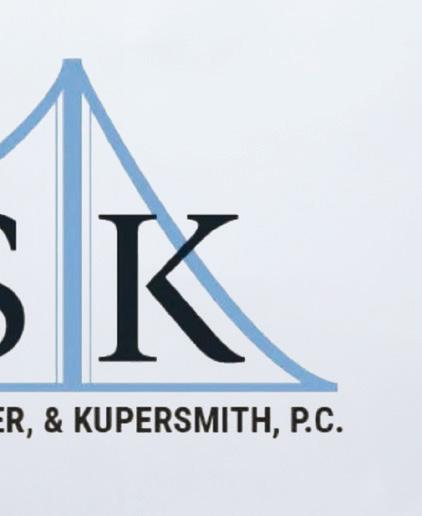







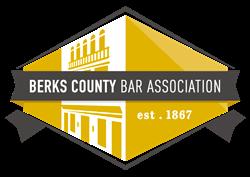
KAREN H. COOK, President
DANIEL C. NEVINS, President-Elect
PETER F. SCHUCHMAN, JR., Vice President
JACQUELIN M. HAMER, Secretary
ANDREW F. FICK, Treasurer
DANIEL CORTES, Director
SARA R. HAINES CLIPP, Director
JAY M. KURTZ, Director
JESSE C. LEISAWITZ, Director
LAUREN M. MARKS, Director
MARK E. ZIMMER, Director
GABRIELA G. RAFUL, Immediate Past-President
GREGORY E. SCOTT, President YLS
BAR ASSOCIATION STAFF
KORI A. WALTER, Executive Director
ROSE M. JOHNSON, Law Journal Secretary/Office Manager
COURTNEY MORSTATT, Publications & Marketing Coordinator
LUCY BRITO, Community Service Manager
VALERIE KRAMER, Law Journal Editor
JACOB KRAMER, Law Journal Assistant Editor
PAMELA VANFOSSEN, Barrister Editor
Please submit materials or comments to: Berks County Bar Association 544 Court Street, P.O. Box 1058 Reading, PA 19603-1058

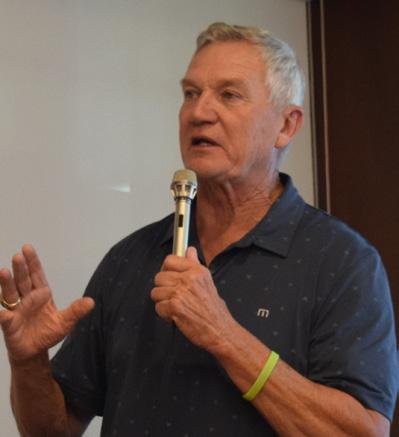

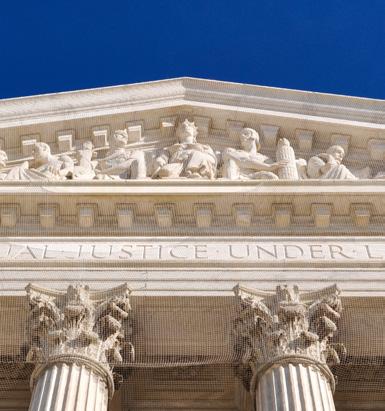
Defender’s Office. Story on page 12.
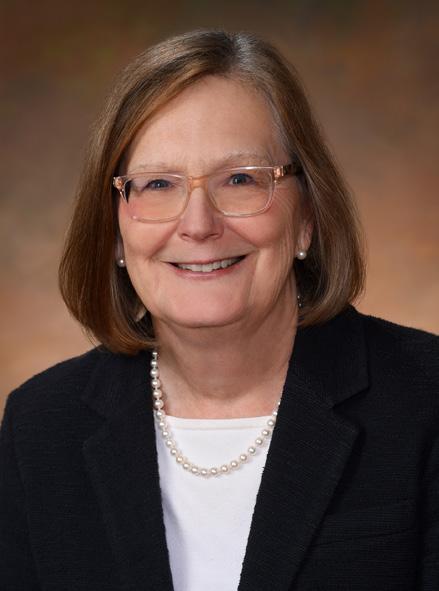
Karen H. Cook, Esquire
2024
Berks County Bar Association President

It has been a tradition of each President of our Bar Association to choose a theme or topic he or she wants to promote during their year as President. I chose promoting and supplementing civics education. Last year, as Berks Bar President, Gabby Raful focused on jury diversity, and I saw civics education in our local schools and for the public as a means to continue and expand on what Gabby began in 2023.
Civics education is important so that students learn about our system of government and how it works. Civics education also prepares students with the skills and values to be informed and actively engaged in their communities. Much is accomplished by local government, and we will need today’s students to be involved in the future in leading our local communities and government.
I became interested in becoming a lawyer during my ninth grade civics and tenth grade government classes. In tenth grade, our teacher arranged for our class to tour the Berks County Courthouse and watch part of a jury trial. The trial was a personal injury action involving a young woman who was injured in an automobile accident. That experience was one of the reasons that as part of supplementing civics education, I wanted to speak to students about careers in the law and assist in providing programs to local students involving the legal field. My hope is that by having lawyers from our Bar Association or others in law-related fields working with students in our local schools on civics-related topics, we can enhance the civics education provided by our local schools and inspire a student who may not have considered it to consider a career as a lawyer or in a law-related field.

Speaking to students at Northeast Middle School students during a Reading School District Career Pathways program. My hope is that working with students will inspire our next generation of lawyers and community leaders.


Insuring Your Investment, Securing Your DreamTM
• Full Title Searches
• Present Owner/Lien Searches
• Title Insurance
• Recording Services
• Settlement, Escrow & Disbursment Services
• Point of Sale for all Real Estate Transactions

Continued from page 5
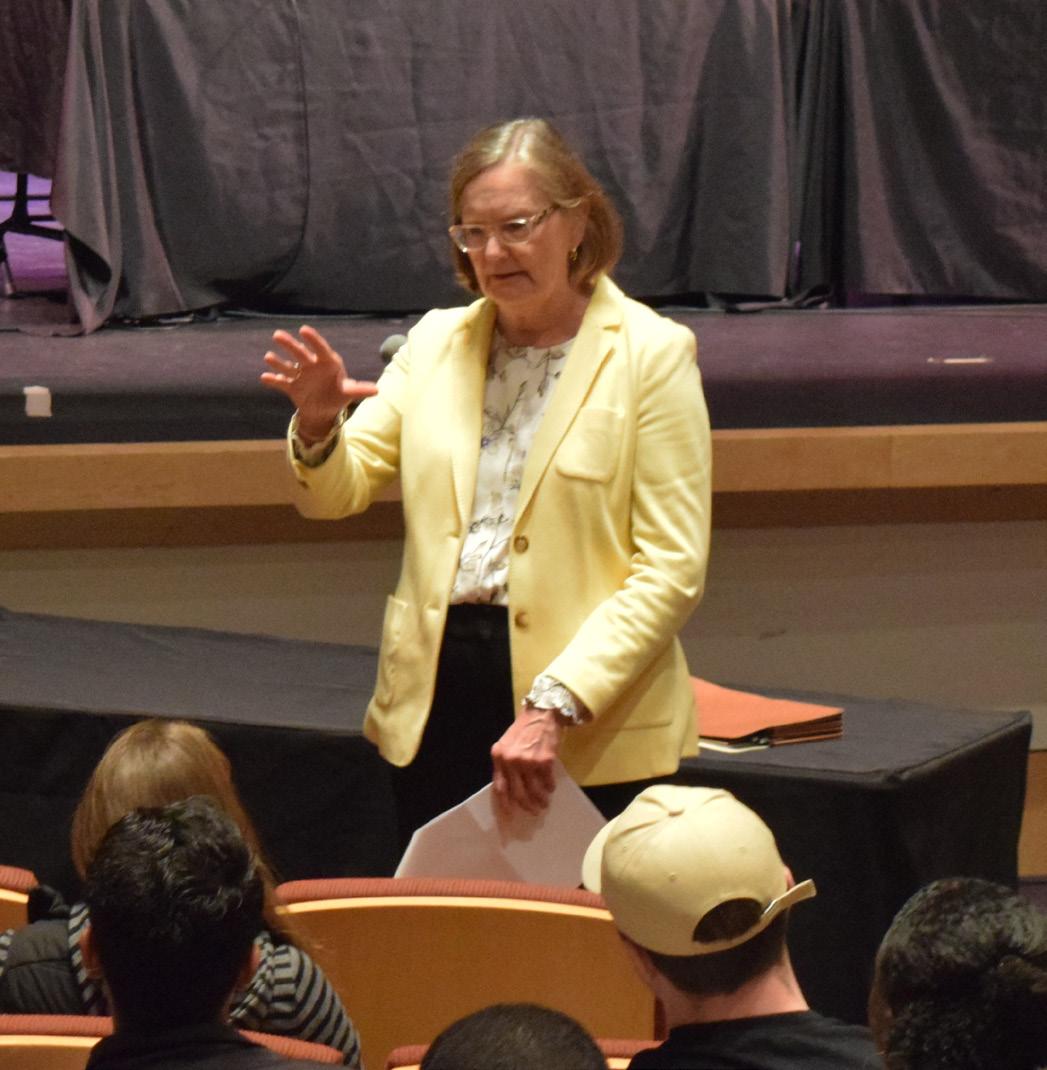
students for oral argument in Doe v. Hopkinton
Schools during a Mock Supreme Court event at Reading Area Community College. Our members did a great job engaging students and discussing how our legal system works.
In Pennsylvania, civics education is required. In 2018, Governor Wolf signed into law Act 35, which requires that beginning with the 2020-2021 school year, all school and education entities in Pennsylvania must administer at least once to students during grades seven through twelve a locally developed assessment of United States history, government, and civics that includes the nature, purpose, principles, and structure of United States constitutional democracy; the principles, operations and documents of United States government; and the rights and responsibilities of citizenship.
In an article by Mark Bernstein in the April 2021 issue of Princeton Alumni Weekly, he discussed civics education and quoted Emma Humphries, the chief education officer of iCivics, a nonprofit organization that promotes civics education, as stating, “If you reduce civics education to the memorization and regurgitation of random facts, you’re never going to achieve the ultimate goal of civic education, which is to prepare people for their role as citizens in our constitutional democracy.” iCivics was founded in 2009 by the late Supreme Court Justice Sandra Day O’Connor and was originally called Our Courts. The organization was formed to combat ignorance about the judicial system but was expanded to include civics institutions in general. iCivics designs lesson plans for teachers and online games for students to make learning civics interesting.
Our clients have grown with us over the last 70 years, and we thank them for their challenges, commitment and dedication.
Our employees appreciate every one of you!

Fast Forward Office Technology 524 Penn Ave, West Reading, PA 800-952-4426 • www.EdwardsBusiness.com

Knowledge of the legal system and how it works is part of civics education. By speaking to local students about careers in the law or in law-related fields, local lawyers and those in law-related fields can help make learning about the legal system interesting. This year, volunteer members of our Bar Association are going to local schools to discuss what a lawyer does and the different areas of the law in which a lawyer can practice – civil and criminal – and where they can practice, including private practice, working for the government, for a corporation, or for a public interest group.
In April, 11 members of our Bar Association coached students participating in a Mock Supreme Court program coordinated by the Rendell Center at Reading Area Community College. The volunteer attorneys coached high school students and Reading Area Community College students and helped them prepare to argue each side of a case before a mock Supreme Court, which included Judge Marjorie Rendell and student justices. The case was based on Doe v. Hopkinton Public Schools, a First Circuit case, in which a public high school had disciplined students for posting negative comments on social media. In addition to coaching the students, the volunteer attorneys gave the students an overview of the federal and state court system, an explanation of appellate advocacy, and the difference between a trial and an appellate argument. After the event, one of the students
that my group coached requested that she be connected with a mentor lawyer and told us that she wanted to be a lawyer.
In May, volunteer lawyers spoke to eighth grade students in the Reading School District as part of its Career Pathways program about what they do daily as a lawyer. We are working with several other local school districts to speak to their civics classes about careers in the law and law-related fields.
In addition to working with local students, the Berks County Bar Association is co-hosting with Keep Our Republic, a public forum to help promote public trust in how Berks County administers elections, specifically the 2024 general election. Keep Our Republic is a non-partisan organization founded in 2020 and is dedicated to upholding the integrity of our electoral system and educating citizens on threats to our democratic values. It is working with local bar associations and other groups across Pennsylvania to educate voters on how our election process works and dispel unsubstantiated claims about election integrity.
Thank you to those who have volunteered in the civics programs the Bar Association has engaged in to date this year. When you receive an email requesting volunteers for future events, please consider volunteering to speak to local students about careers in the law.

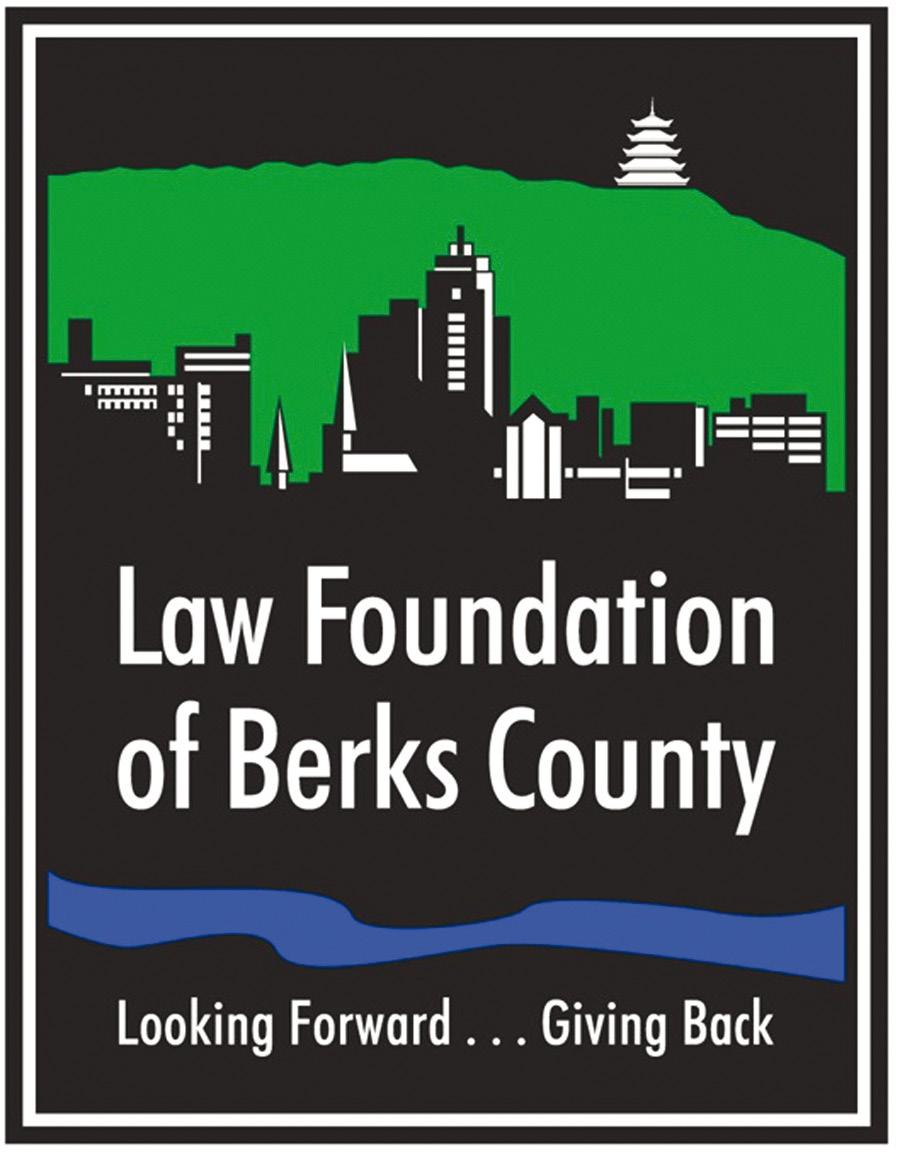
The Law Foundation of Berks County continued its annual tradition of encouraging the love of reading in the community’s youth through the Book ’Em program. Headed by volunteer JoAnn Lightman and Law Journal & Office Manager Rose Johnson, this program provides books for students in pre-k and kindergarten classes in the Reading School District. This year, each pre-k student took home Clifford’s Manners and every kindergarten student received Pete the Cat and the Cool Caterpillar after their respective book was read to their entire class by one of our amazing attorney volunteers. This year, 42 volunteers visited 13 schools to read to 426 pre-k students in 23 reading sessions and 1,257 kindergarteners in 58 reading sessions, and because of your generosity, $5,120 was raised to be used to keep the program active for years to come. The program would not be a success year after year without the dedication of our readers and the generosity of our donors who make providing these books possible so every student can develop a joy of reading and begin building their own personal library.
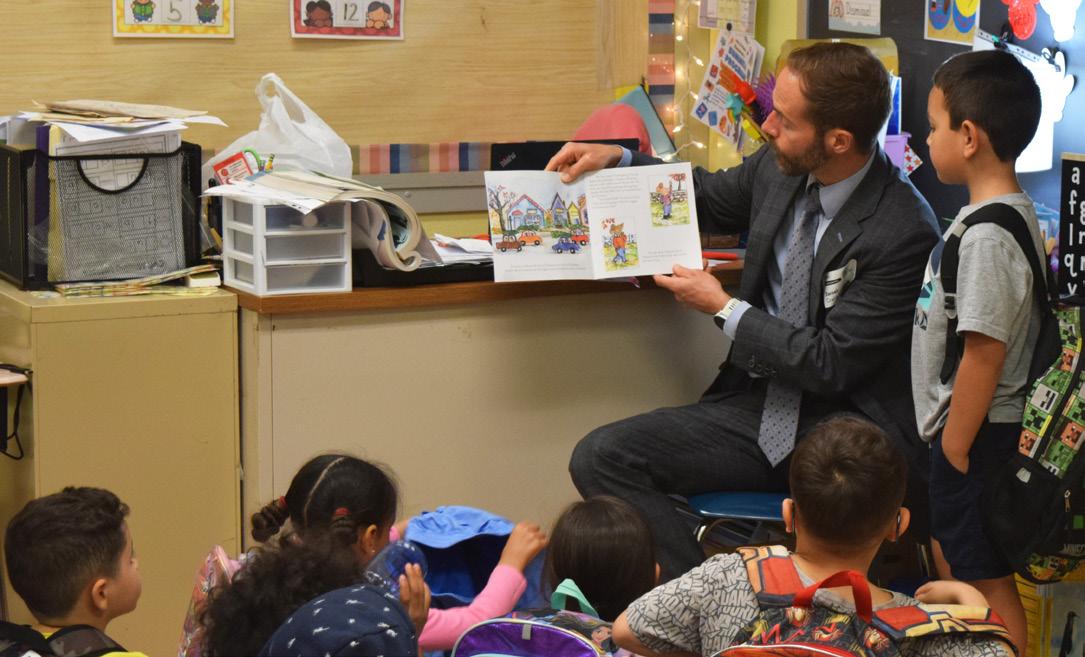





Franki A. Aitken
Raymond E. Baker
Jana Ruth Barnett
Honorable Patrick T. Barrett
Mary Ellen Batman
Daniel E.P. Bausher
Beth A. Bowers
K. Kenneth Brown, III
Eden R. Bucher
Steven D. Buck
Honorable Tonya A. Butler
Honorable Priscilla Campos
Nikolas D. Capitano
Karen H. Cook
Alfred W. Crump, Jr.
Michael D. Dautrich
Pamela A. DeMartino
Renee L. Dietrich
Colleen Dugan Schearer
Merle & Wendy Dunkelberger
Andrew F. Fick
John A. Fielding, III
Charles F. Fitzpatrick
Susan E.B. Frankowski
Susan K. Gernert
Michael P. Giles
Dr. James A. Gilmartin
Barry Groebel
Sara R. Haines Clipp
Jacquelin M. Hamer
Bernice Hoffer Hartman
Scott Hess
Joanne M. Judge
Margaret Kaiser Collins
Robert D. Katzenmoyer
Beth M. Kohl
Chris Kraras – White Star Tours
Jay M. Kurtz
Jesse C. Leisawitz
Howard & JoAnn Lightman
Joan E. London
Jennifer Lukach Bradley
Heidi B. Masano
Lori Mentzer
Rosalynda Michetti & Stuart Crichton
Kenneth Millman
John J. Miravich
Fredrick R. Mogel
Kenneth C. Myers
Daniel C. Nevins
Jennifer L. Nevins
Michael J. Noon
Andrew C. Onwudinjo
Miki Onwudinjo
Scott C. Painter
Dawn M.L. Palange
John Perate
Charles J. Phillips
Jesse L. Pleet
James M. Polyak
Gabriela G. Raful
Doug P. Rauch
John E. Reigle
William F. Roberts
Honorable Jill M. Scheidt
Honorable Jeffrey L. Schmehl
Peter F. Schuchman, Jr.
Latisha B. Schuenemann
Andrew Schwartz
Sharon M. Scullin
Wendy Sharetts
Louis M. Shucker
Lisa A. Siciliano
Donald F. Smith, Jr.
James M. Snyder
Amanda Sobotka
Deborah A. Sottosanti
Joseph R. Speece
Betsy Hawman Sprow
Edwin L. Stock
Denice M. Szekely
Honorable Eric J. Taylor
Maryanne & Bob Ullman
Pamela L. VanFossen
Terry D. Weiler
Gregory R. Young
Connors Investor Services
Curran Estate & Elder Law
Dolan Ray Law, LLC
Koch & Koch
Law Offices of Richard T. Curley
Sodomsky & Nigrini
Stevens & Lee

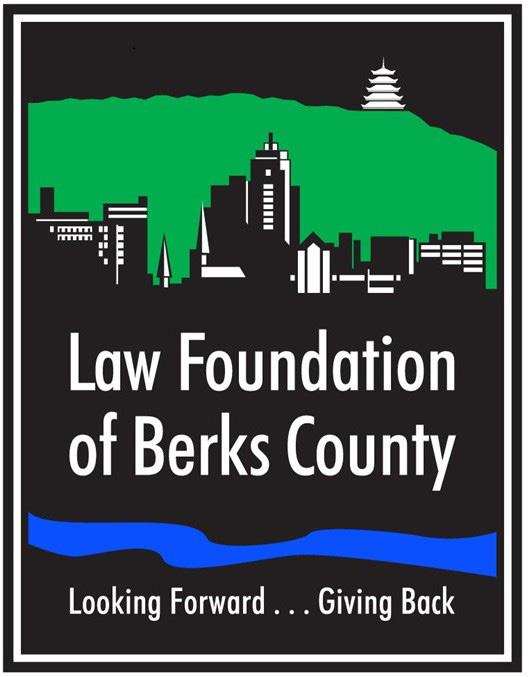
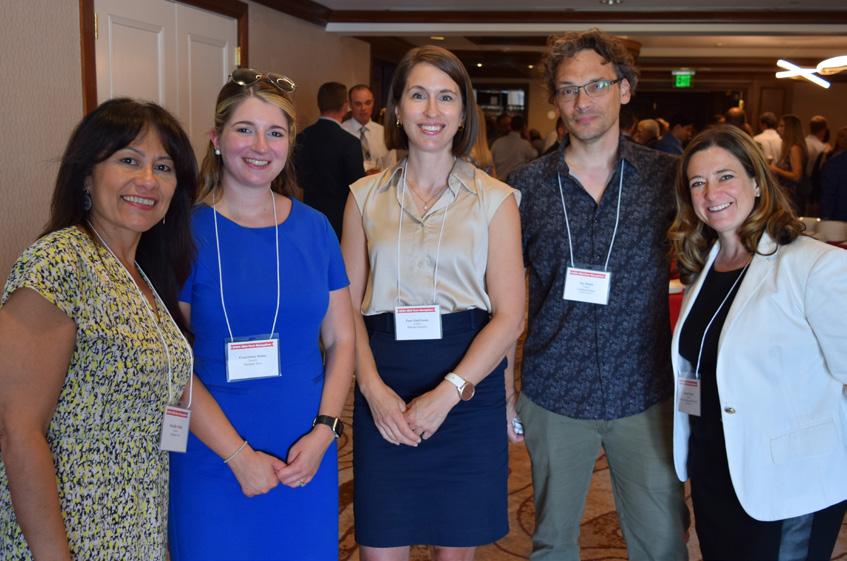
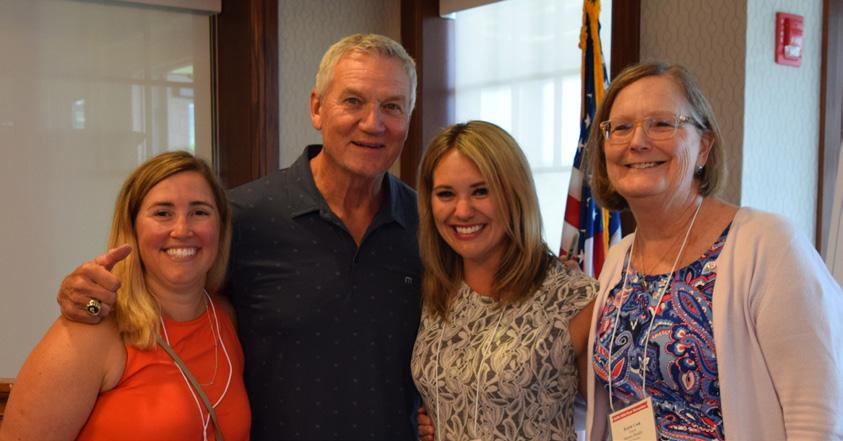
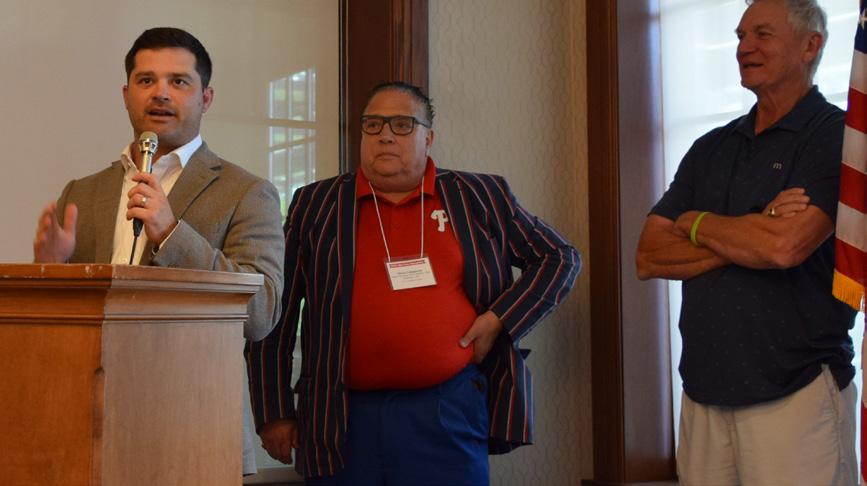
Phillies fans who saw it – or maybe searched the Internet for videos of it – call the jaw-high fastball that sent Hall of Fame third baseman George Brett sprawling to the ground “the pitch that changed the 1980 World Series.”
Dickie Noles, the Philadelphia Phillies pitcher who hurled that fastball, was the special guest during the Law Foundation of Berks County and PICPA Mid-Year Sponsor Appreciation Reception on June 20. Connors Investor Services sponsored the reception attended by more than 120 people at the Berkshire Country Club.
Noles was a relief pitcher on the 1980s World Series winner. He entered Game 4 of the series after the Kansas City Royals clobbered starting pitcher Larry Christienson. Noles knocked down Brett on an 0-2 pitch. Though the Phillies lost that game 5-3, they went on to win the World Series in six games.
Third baseman Mike Schmidt, the 1980 World Series MVP, described how Noles changed the momentum and helped the Phillies capture their first World Series title.
“That pitch turned the faucet off. The faucet was open as wide as possible and the water was gushing out and all of a sudden Dickie shut the faucet off,” Schmidt said in a 2020 Philadelphia Inquirer article by Matt Breen. “People often talk about a home run or a big play that changed the momentum of a World Series. Seldom would you say that one pitch did. But all of us that played the game know that that pitch changed the momentum of the series and it needed to happen at that point.”
Noles recounted the incident during his visit to Berks County in June, explaining he was relieved the pitch didn’t hit Brett because it very likely would’ve injured him.
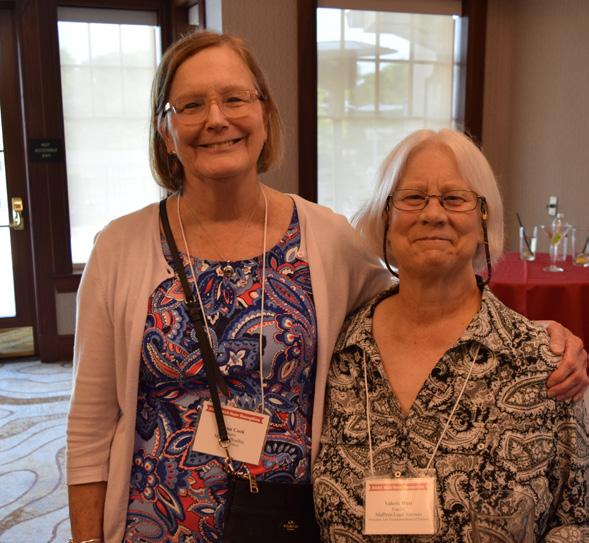
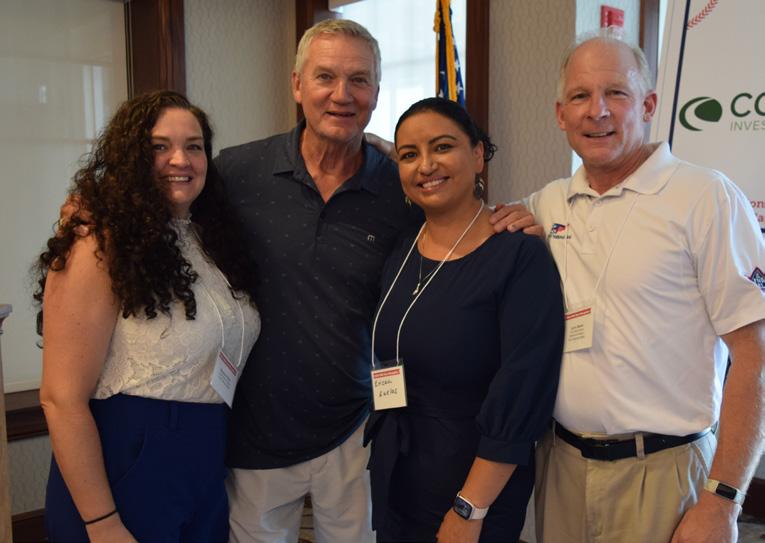
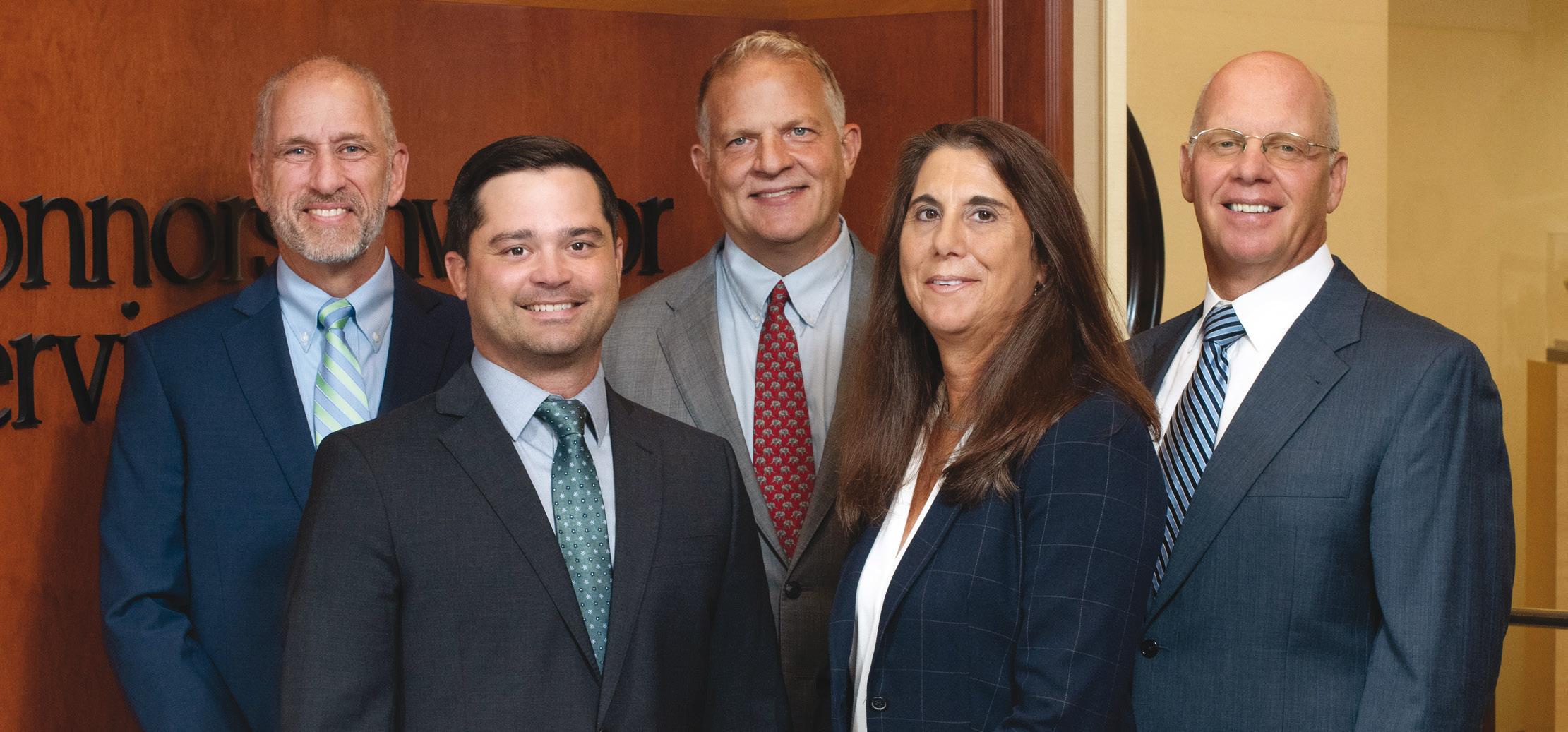
Our long-term perspective and counseled insight provide the confidence investors need in today’s challenging environment. As a registered investment advisor, our fiduciary responsibility is only to you and the best interests of your investments.
Count on our qualified professionals for the trust, tenure and talent you can take confidence in—for the long term.
In addition to sharing tales about his baseball career, Noles spoke about his work with charitable organizations throughout the years.
The reception is held to express gratitude for the incredible support of the local banks, financial services, accounting and law firms, and other businesses that sponsor the Annual Holiday Benefit Luncheon. This year’s luncheon will be Friday, December 6 at 11 AM at the DoubleTree Hotel in downtown Reading. Philadelphia Phillies Manager Rob Thomson will be the special guest at that event. M&T Bank - Wilmington Trust will be the Hall of Fame sponsor. Interested in attending? Email Courtney Morstatt at cmorstatt@berksbar.org.
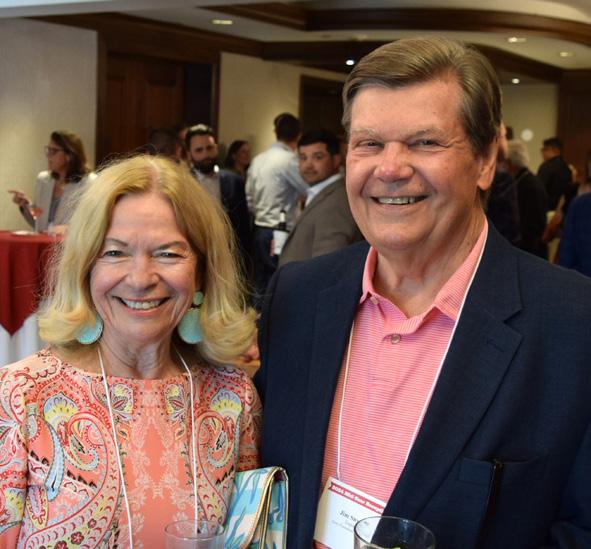
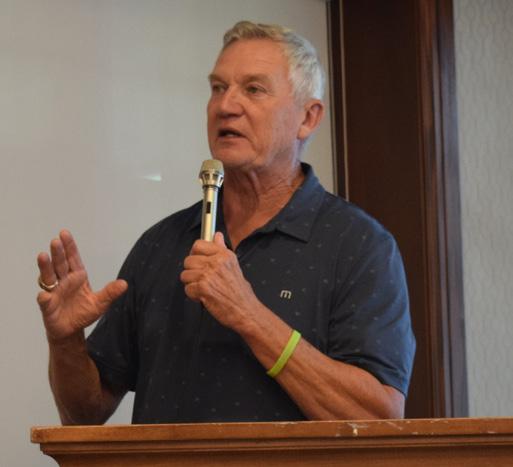
Integrity, Service, Performance. 610-376-7418 • connorsinvestor.com
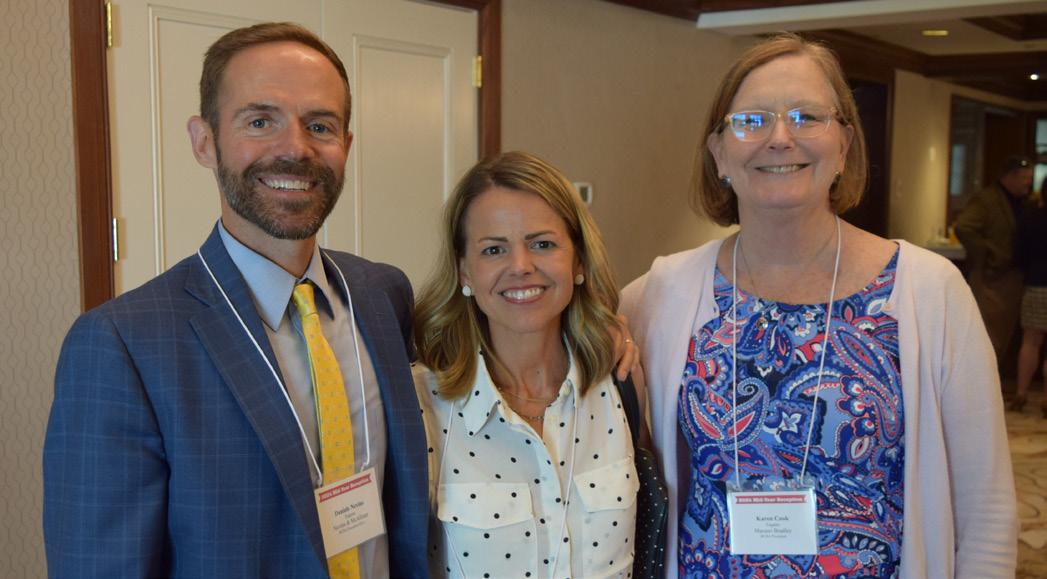
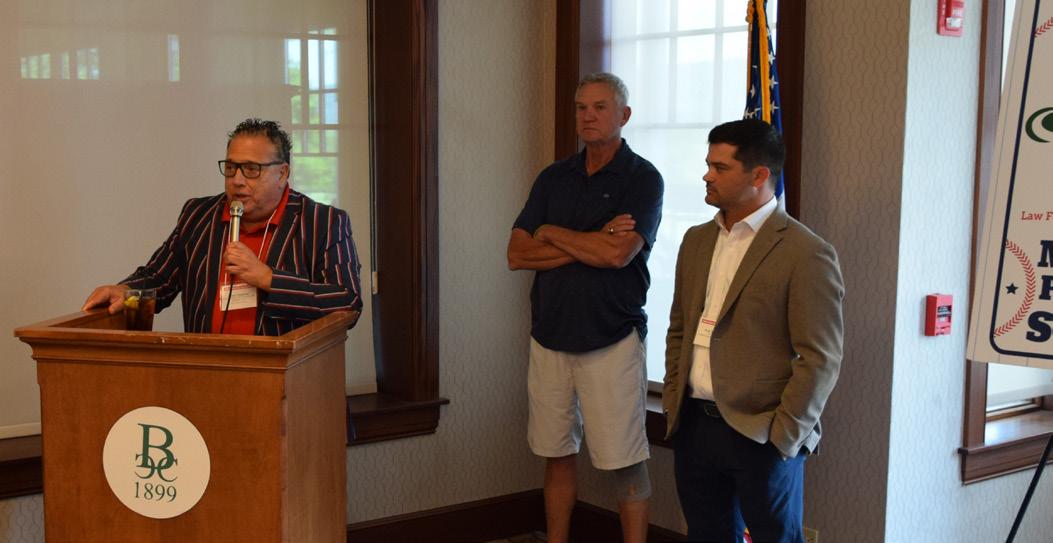

By Kirby S. Gordon, Esquire
After more than two decades of service, Attorney Glenn D. Welsh retired from the Berks County Public Defender’s Office in 2023. It was time for someone else to take up the torch.
For those who have been a part of the Berks County Bar and Bench, it came as no surprise when Attorney Keith McConnell became the new Chief Public Defender in August 2023.
What does this new leadership mean for the Public Defender’s Office and the clients they represent? Getting to know Keith will tell you just what’s in store for the future.
Keith is a Berks County native who graduated from Governor Mifflin High School in 1985. He went on to Gettysburg College where he earned a B.A. in political science and became a member of Sigma Alpha Epsilon. He attended Widener University School of Law in Delaware and graduated in 1992.

McConnell notes a culture shift has led to more optimism among assistant public defenders about the work they do and an eagerness to engage in team building. Here William C. Bispels and Kirby S. Gordon discuss an upcoming “Taco Thursday” potluck lunch the office is planning.
Throughout his schooling, Keith was a football player and eventually became a football coach.
At Gettysburg College, Keith was an offensive lineman on the 1985 team that went undefeated and reached the Division III national semi-finals.
He credits his experience as an athlete and states, “Everything I learned, I learned playing and coaching football.”
This becomes obvious when Keith talks about the team that is the Public Defender’s Office.
“We have some of the best attorneys in Berks County and the state who work very hard to represent our clients without being recognized for what they do day in and day out,” Keith said. “We have a group of client services coordinators who are some of the best in their field who do meaningful work without being recognized outside of the office. Our support staff are equally talented individuals who also do not get outside recognition but continue to do their jobs tirelessly. Our supervisors go above and beyond to ensure that we provide zealous representation in each of the courtrooms. As a whole we have a team that, as far as I’m concerned, is the best in the state.”
Keith first came to the office in 1993 and left in 1995, only to return in 1997, and has remained here since. Over the decades, he has seen the changes in laws, attorneys, judges, and more. What has not changed is the still-persistent negative view of public defenders. Attorneys in the Public Defender's Office have been told they are not real attorneys or “public pretenders.” In spite of this, “[our] attorneys continue to provide top-rate representation to the clients, increase our community outreach, and educate the public on the value of the services provided by our office.” What he hopes to see is that the office does get more help for the clients. Many people who come through the criminal system also suffer from mental health issues, substance abuse and addiction, housing insecurity, and lack of opportunities in education and vocation.
“We’ve been able to change and mitigate the impact of these problems through the efforts of our attorneys and our client services coordinators, who provide information for services to our clients. We’ve taken a more holistic approach in representing our clients and protecting their rights… We need the community to understand that our clients are people going through tough times and need our help – they are individuals who need our zealous representation.”
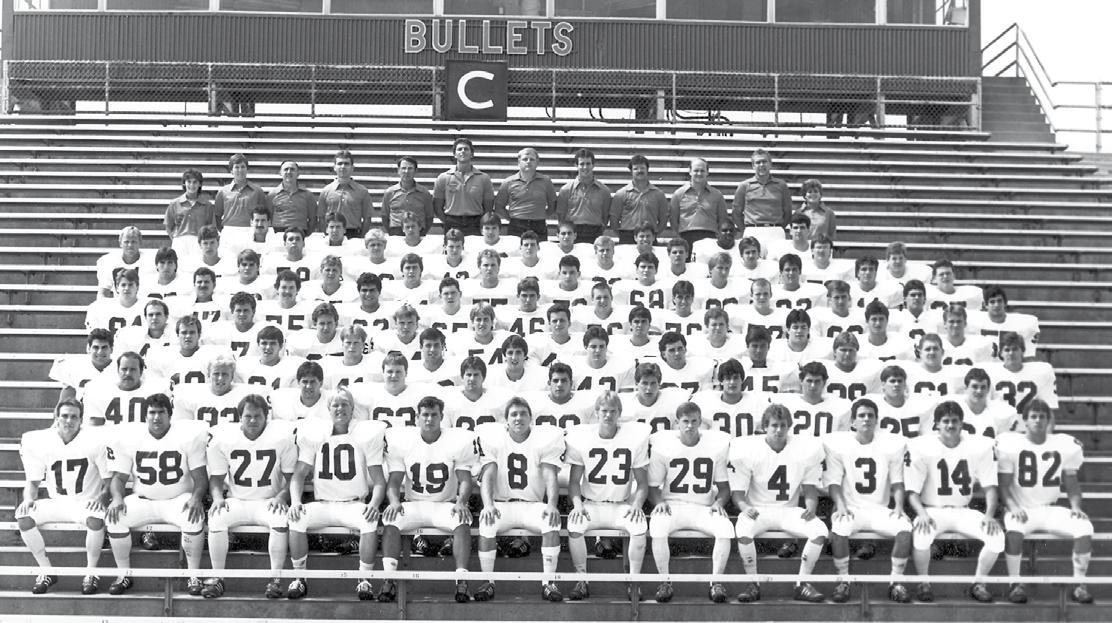

McConnell credits football for preparing him for his career in law and leadership roles. McConnell was a member of the 1985 Gettysburg College team that went undefeated.
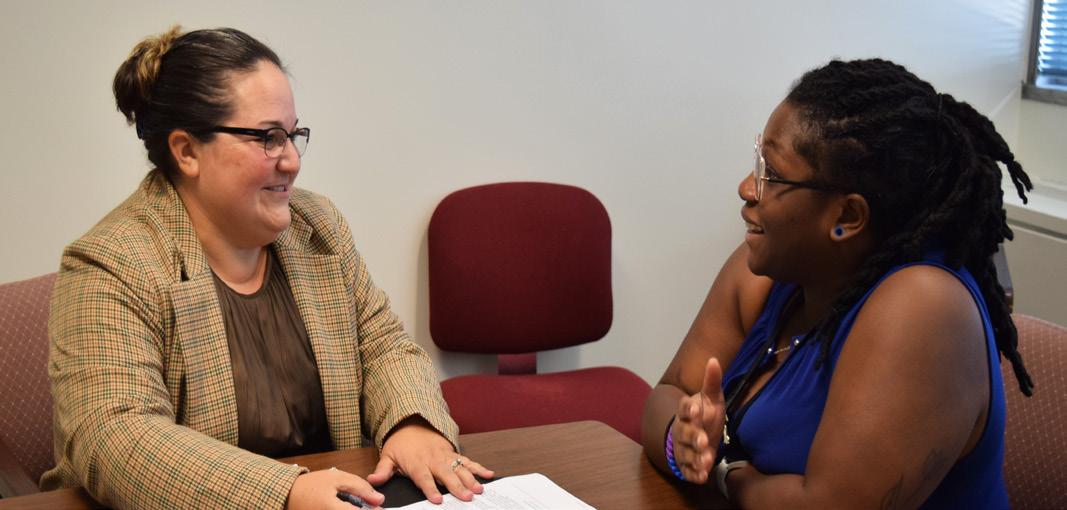
Amy Litvinov and Kirby S. Gordon are two of the assistant public defenders on a team that McConnell considers some of the best attorneys in the county and the state.
Keith believes that no one should be defined by a single incident in their lives. Everyone should have the ability and responsibility to be the best version of themselves. He encourages the rest of the office to be themselves and maintain their individuality, allowing them to be better in encouraging and supporting their clients to do the same. The office is made up of a diverse group of individuals, all coming from different backgrounds and life experiences. The diversity in the office is one of its strengths. “I am encouraged day to day by seeing our team come into work every day, being able to express themselves as individuals with unique talents and backgrounds but have the team mentality so we can do more for our clients.”
What does “doing more” mean? The advocacy extends beyond the courtroom. Simple changes to use more inclusive language for
client applications, reaching out to the LGBT Center in Reading, and encouraging two-attorney teams on serious felonies are all changes that have occurred within the last year.
Since taking over as Chief Public Defender, Keith has noticed a shift in the office culture. “The entire staff is a little more optimistic about what we do. We have support from our commissioners, Bar Association, the courts, and other departments. The staff looks forward to our team building activities and feels comfortable coming to work as themselves, and not just their jobs… I look forward to seeing our attorneys become the best they can be and become leaders in not only the bar, but also their respective communities. I view my job as giving the employees in this office the support and guidance they need to become the best at what they do. One of the things I’m most proud of is that our team does not shy away from the hard work of the day-to-day operations of this office, and they take pride in saying they work for the Public Defender’s Office and believe in the work we do.”
Finding people who truly believe in the work that public defenders do can be difficult. Finding someone who can lead the office with humility, passion, and determination is a different task all together. Keith McConnell as the Chief Public Defender is a touchdown, and he looks forward to many more years of leading this team.
Ms. Gordon is a Berks County Assistant Public Defender.



This year’s annual golf competition and picnic took place on a warm spring day on May 22 at the Moselem Springs Golf Course in Fleetwood. Over a dozen golf foursomes engaged in some friendly competition throughout the day, and a few members took home the top awards. Kelsey Frankowski and Mike Dautrich won Longest Drive in their respective women’s and men’s categories. Vicki Gallen-Schutt won the women’s Closest to the Pin while Paul Marrella and John Speicher won the men’s Closest to the Pin. The Lowest Scoring Team was Bill Blumer, John Speicher, Fred Nice, and Kevin Moore. During the evening, the golfers were joined by their fellow members of the Bar Association to enjoy some drinks, a delicious buffet, great conversation, and a beautiful night on the Moselem Springs Golf Course’s patio.

Kevin
and Fred


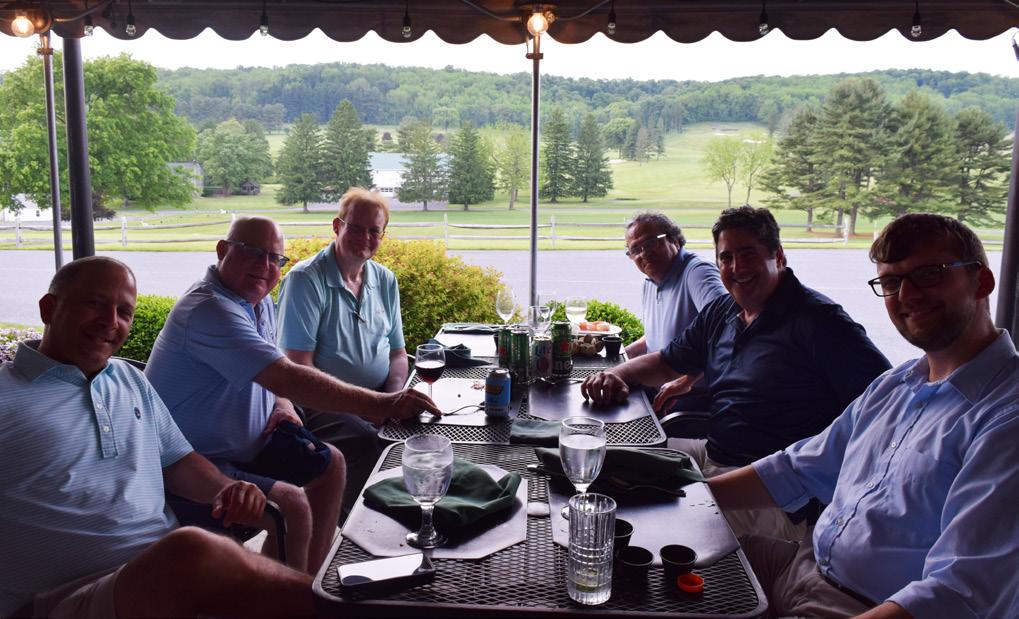





President-Elect


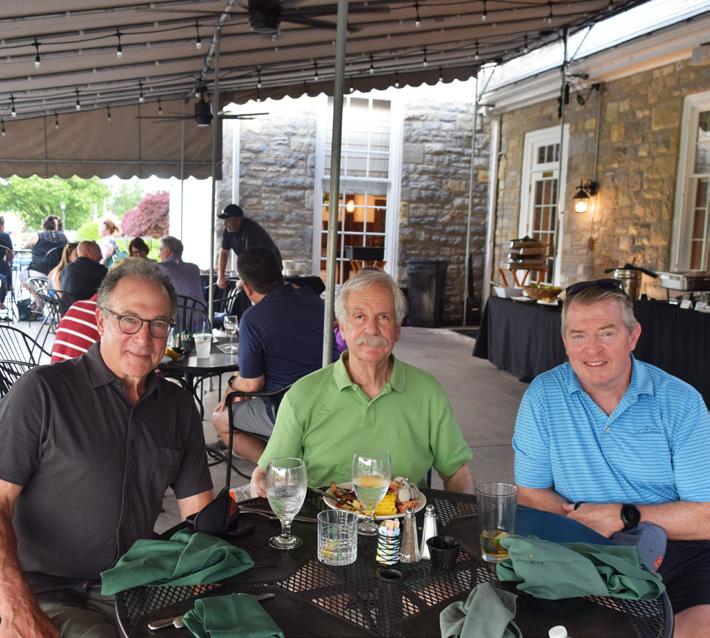




Connelly v. United States decision has family-owned businesses and closely held corporations reevaluating succession and estate planning strategies.
By Kourtney Bernecker, Esquire
For many closely held businesses aiming to maintain continuity of ownership and operations, it is common for the business and its owners to enter into an agreement where the deceased owner’s interest will be redeemed by the business. It has become common practice for the closely held business to then take out a life insurance policy to fund this obligation. Companies whose business succession planning includes the use of life insurance policies to fund these buy-sell agreements may have to go back to the drawing board as a result of a recent U.S. Supreme Court decision.
In Connelly v. United States, 602 U.S. (No. 24-146., June 6, 2024), the Court examined the issue of determining the fair market value of a decedent’s shares in a closely held corporation on the date of his death for purposes of estate taxation when the corporation is obligated to redeem the decedent’s shares as funded by a life insurance policy.
In a 6-4 decision written by Justice Thomas, the Court held that the corporation’s contractual obligation to redeem the shares is not necessarily a liability that reduces a corporation’s value for purposes of the federal estate tax.
The facts of Connelly are not unique. Michael and Thomas Connelly and their business, Crown C Supply, had a buy-sell agreement providing that the corporation was to purchase the deceased’s shares at fair market value. When Michael died, his son and Thomas, as the executor, agreed not to have the corporation appraised but rather agreed that Michael’s shares were worth $3 million, and the corporation was worth $3.86 million. The corporation received $3 million dollars in life insurance proceeds. While the corporation was obligated to redeem his 77.18% ownership interest for $3 million, the IRS determined that this
obligation did not reduce the value of the corporation and the fair market value of his shares at the time of his death was $5.3 million – resulting in almost $900,000 in additional estate tax.
It is important to remember that valuation principles used by accountants for purposes of developing a purchase price for a third-party buyer or for us to negotiate a corporate buyout do not always reconcile with the Internal Revenue Code and Treasury regulations. The Treasury regulations provide that the fair market value of the corporation determines the value of the shares and must consider “the company’s net worth, prospective earning power and dividend-paying capacity, and other relevant factors,” “including proceeds of life insurance policies payable to… the company.” 26 CFR § 20.2031-2(f)(2). The life insurance proceeds payable to the corporation are an asset that increases the corporation’s fair market value.
The Court said that the corporation’s obligation to pay for Michael’s shares did not reduce the value of the shares because “no real-world buyer or seller would have viewed the redemption obligation as an offsetting liability.” The Court focuses on the fact that the obligation does not affect any shareholder’s economic interest and, therefore, no willing buyer purchasing Michael’s shares would have treated the corporation’s obligation to redeem Michael’s shares at fair market value as a factor that reduced the value of those shares. The Court argues that any valuation that takes the redemption obligation into account effectively values the corporation on a post-redemption basis – this is inconsistent with the provision of the Internal Revenue Code that requires an assessment of how much Michael’s share were worth at the time he died – before the redemption payment. 26 U.S.C. § 2033; 26 CFR § 20.2031-1(b) (“the value of every item of property includible
in a decedent’s gross estate…is its fair market value at the time of the decedent’s death”). If the value of the corporation was $3.86 million both before and after the redemption, then there must have been a disproportionate shift of the value of the corporation to Thomas immediately after the redemption because his shares would have been worth four times what Michael’s shares were worth at redemption.
This is a decision that is difficult for corporate counsel and accountants to swallow. The idea that the redemption obligation is not factored into the valuation seems counterintuitive, but unfortunately, without legislative action, it is where we stand.
This decision in Connelly highlights the importance of collaboration among lawyers across different areas of focus. Here, corporate counsel and estate counsel must collaborate in corporate succession planning and estate planning to mitigate potential estate tax issues. The common-place strategy of a buy-sell agreement may no longer be the right fit for our client and we may need to explore alternative strategies for succession planning or for funding the obligations of buy-sell obligations. The potential for significant tax consequences, unfortunately, hinges on the size of a client’s estate. Should companies consider having thorough appraisals conducted on a regular basis to enable proper planning and to avoid unexpected consequences at a time of mourning? Business owners may be more inclined to explore strategies like gifting ownership interests during their lifetime or implementing more sophisticated estate freezing techniques. Some may consider reorganizing their ownership structure or be ready to consider employee stock ownership plan (ESOPs).
The impact of Connelly may be greater for family-owned businesses. A family-owned business means that this increased estate tax burden is likely felt by the same people who own the business and now must take over operations. The impact could make it difficult for the next generation to keep the family business, and we could see more of our clients looking to sell to third parties. We may also see more conflict among family members on how to fund this tax burden.
The decision in Connelly ultimately stems from an interpretation of the Internal Revenue Code, so I suspect that business advocacy groups and estate planning organizations will begin to lobby for legislation where life insurance proceeds are treated differently or, perhaps, the obligations set forth in a buy-sell agreement are factored into the valuation.
While we wait for legislation, it’s clear that many businesses need to reevaluate their succession strategies in light of this new interpretation. It’s time to step away from the go-to buy-sell agreement and develop innovative solutions that balance the goal of a smooth business transition with the new tax impact created by this decision.
Ms. Bernecker is an attorney with Smith|Bukowski in Wyomissing.

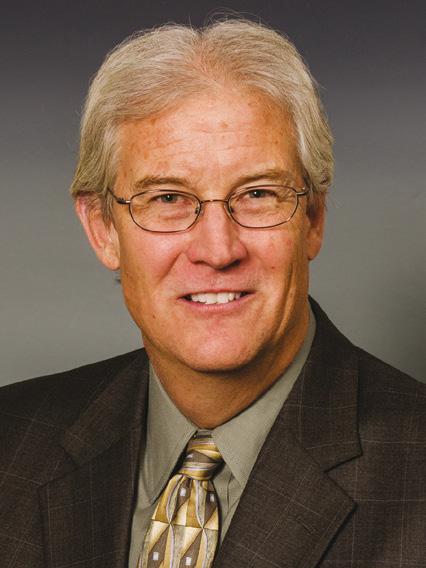
at their most vulnerable, your clients need a personal injury lawyer they can trust. With more than 40 years of experience, Dan will work to make sure your clients receive the help they need.
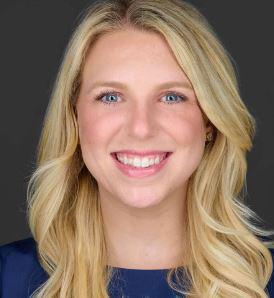

The Bar Association kicked off summer once again with the annual Pets at the Park event, hosted by the Wellness Committee. Members, their families, and their pets gathered at Muhlenberg Township’s Jim Dietrich Park on June 1 to enjoy a late morning meet-up with their four-legged companions. The Perk Up Truck provided delicious treats, from coffees and smoothies to puppichinos for the dogs. This year’s event featured some friendly competition for the dogs as members voted for their favorite four-legged contestants in the following categories: Best Manners to Judge Justin Bodor’s dog Henry, Best Groomed to President-Elect Dan Nevins’s dog Sophie, and Best in Show to BCBA Director Lauren Mark’s dog Delta.





Everyone enjoys their drinks and puppichinos, courtesy of The Perk Up Truck.

Members and their families enjoy the great weather and kick off the summer season at Jim Dietrich Park.

Judge Bodor’s daughter Charlotte poses with MDJ Eric Taylor’s dog Coco.

Lauren Marks’ daughter Teagan casts her ballot in this year’s Pets at the Park Contest.

Puppies and kids run around to burn off the sugar from their sweet treats.

Everyone takes a rest from a fun-filled morning by chilling in the shade and enjoying their drinks and snacks.


Elisabeth Timura's dog Saban contemplates joining a game of fetch.

Members, Berks County students, and local officials celebrated the 66th annual Law Day at the Berks Bar Law Day Luncheon on May 16 at the Reading Country Club in Exeter Township. This year’s theme was “Voices of Democracy.” Keynote Speaker Secretary of the Commonwealth of Pennsylvania Al Schmidt spoke on the integrity of Pennsylvania elections, shared the Commonwealth’s plans for this year’s election, and assured the 2024 election will be fair and secure during the Fireside Chat portion of the luncheon. In addition, the Bar Association recognized Fleetwood High School’s Mock Trial team for their continued excellence as the top performing Berks County school in the annual mock trial competition. President Karen H. Cook also congratulated four Berks County students who placed in the 2024 Law Day Multimedia Competition: Aisling McCoy, 5th grader from La Salle Academy; Jimmy McHale, 6th grader from West Reading Elementary Center; Selina Lin, 7th grader from St. Catharine of Siena School; and Carly Hill, 7th grader from St. Catharine of Siena School.
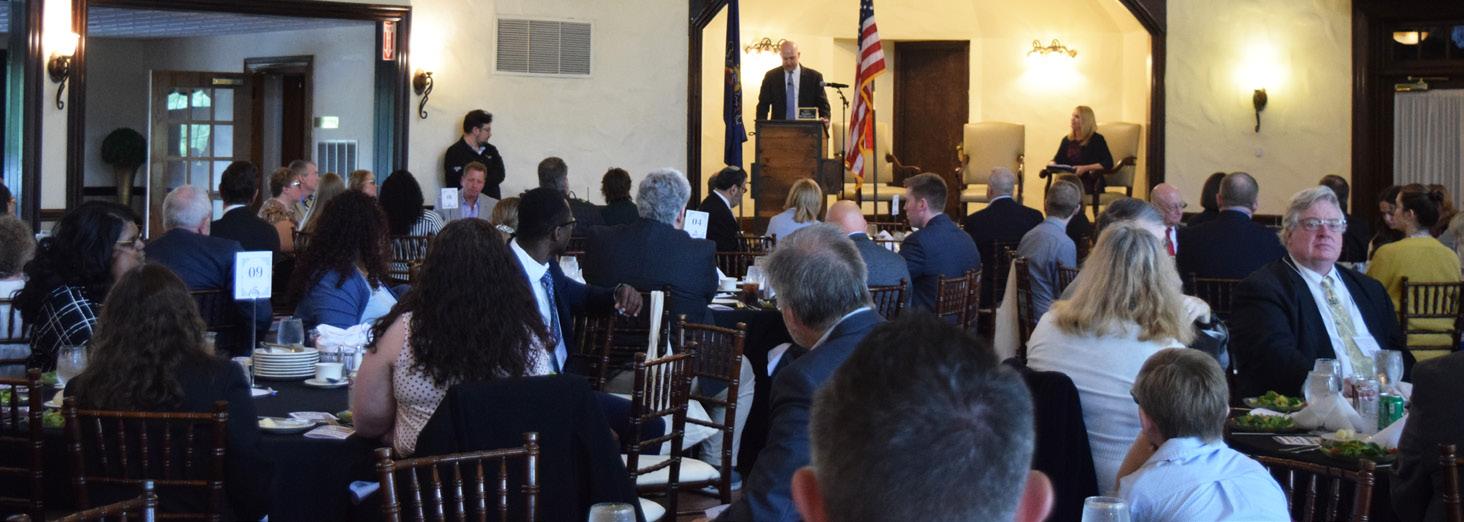
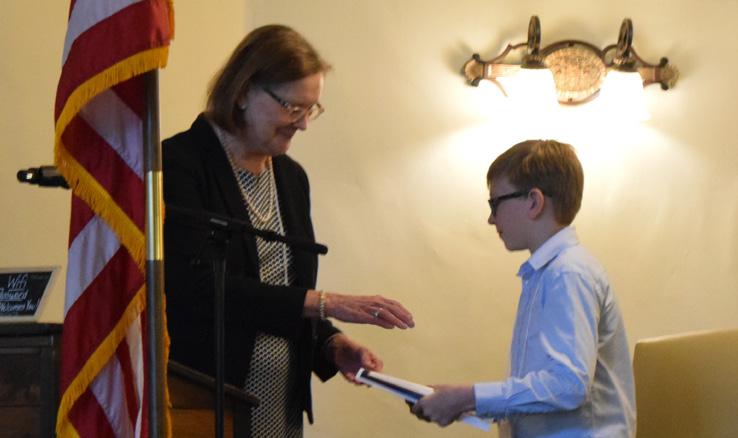
President Karen Cook presents Jimmy McHale, 6th grader from West Reading Elementary Center, the first-place award for the 5th and 6th grade category in the 2024 Law Day Multimedia Competition. Jimmy created a video which features photos of him “voting” at every election, primary and general, with his dad since he was born. He has already participated in 24 elections, and his first opportunity to have his vote count is May 2030.
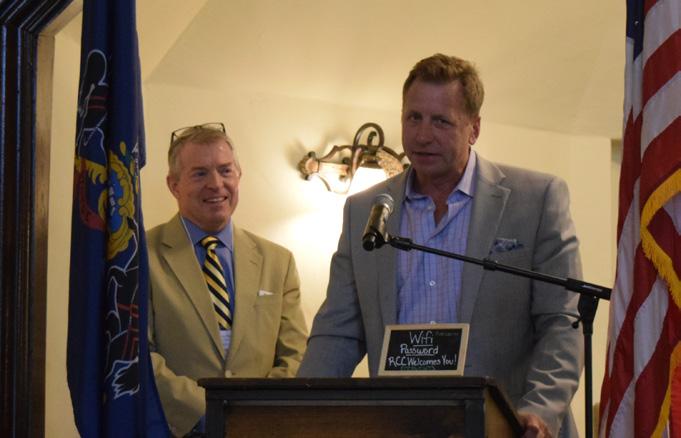
Mr. Scholl, father of Fox Memorial Scholarship winner Olivia, accepts the award on her behalf and shares her future plans as she finishes her degree at Widener University Delaware Law School.
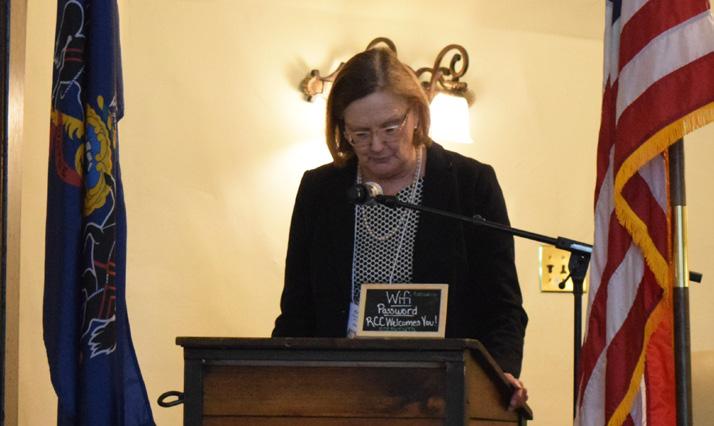
President Karen Cook shares this year’s Law Day theme “Voices of Democracy.” The theme encourages everyone to reflect on our nation’s 250 years of voting in elections by learning more about the electoral process, discussing critical issues in a civil manner, and exercising their right to cast a ballot on Election Day.

2024 Law Day Multimedia Competition winners: Jimmy McHale, 6th grader from West Reading Elementary Center; Aisling McCoy, 5th grader from La Salle Academy; Carly Hill, 7th grader from St. Catharine of Siena School; and Selina Lin, 7th grader from St. Catharine of Siena School.
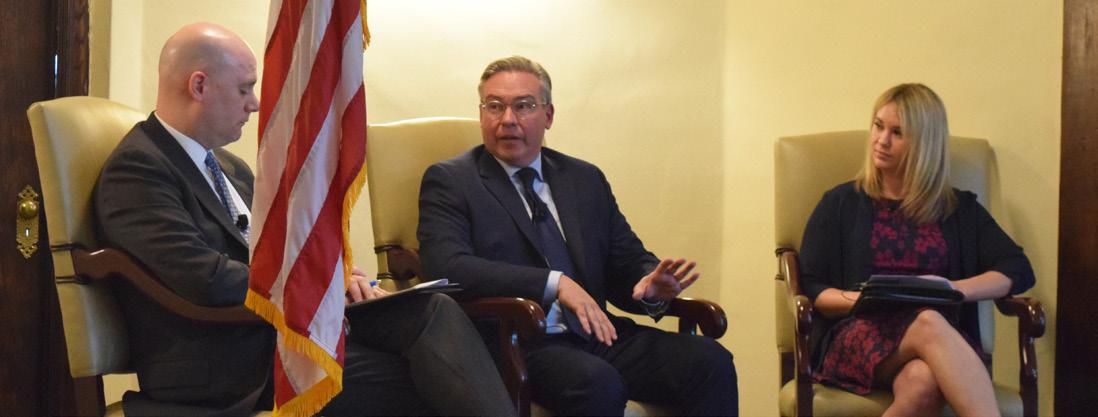
Secretary Al Schmidt shares the Commonwealth’s plans to ensure a safe and fair election this November.
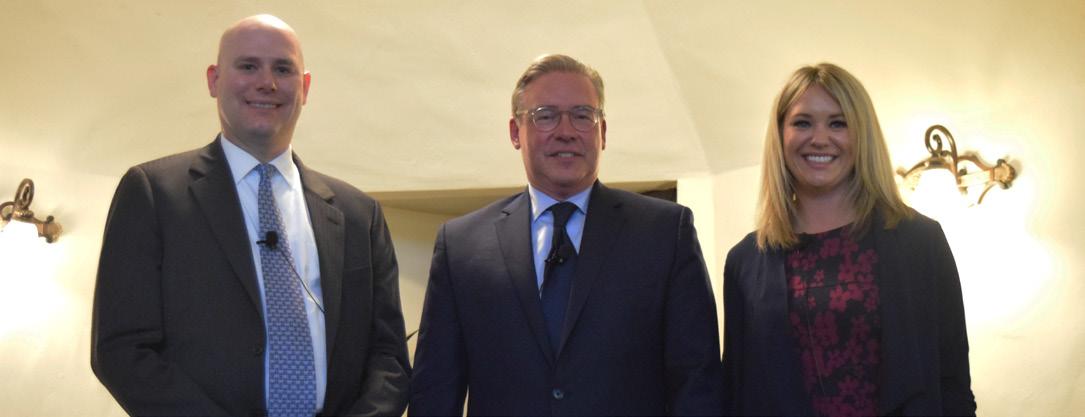
Allen Gehring, Secretary Schmidt, and Kelsey Frankowski, Co-Chair of the Law Day Committee, after a successful 2024 Law Day Luncheon.
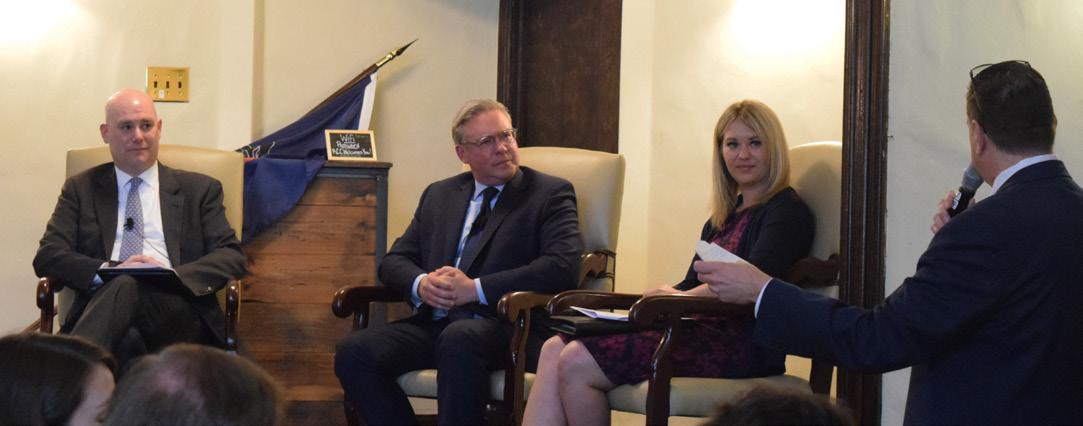
Executive Director Kori Walter asks Secretary Schmidt some audience questions during the Fireside Chat.
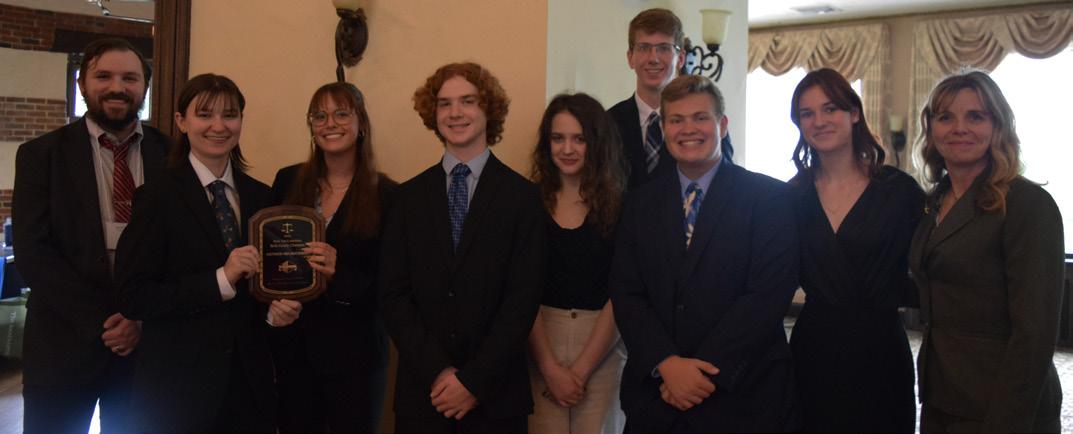
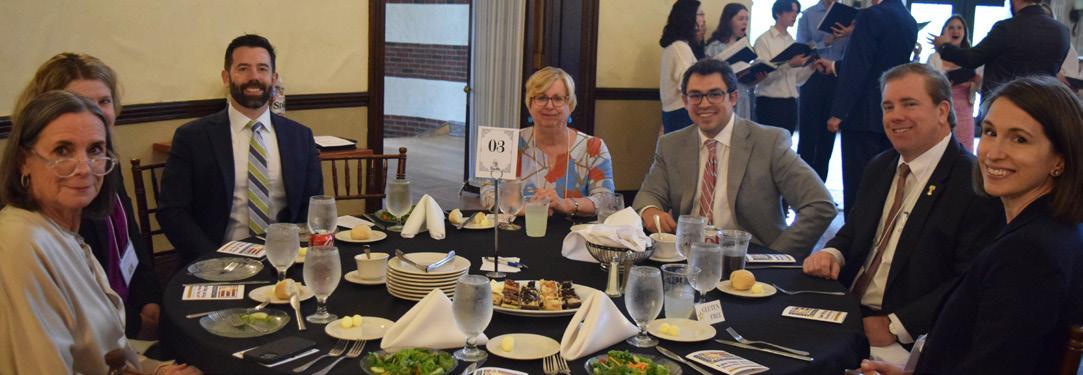
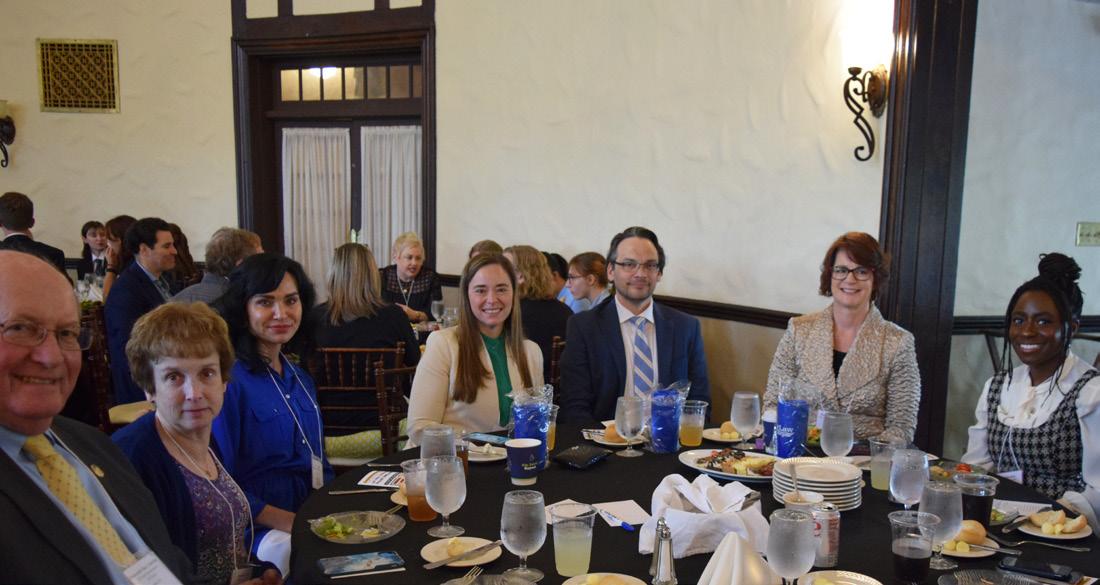
Barry Jozwiak;
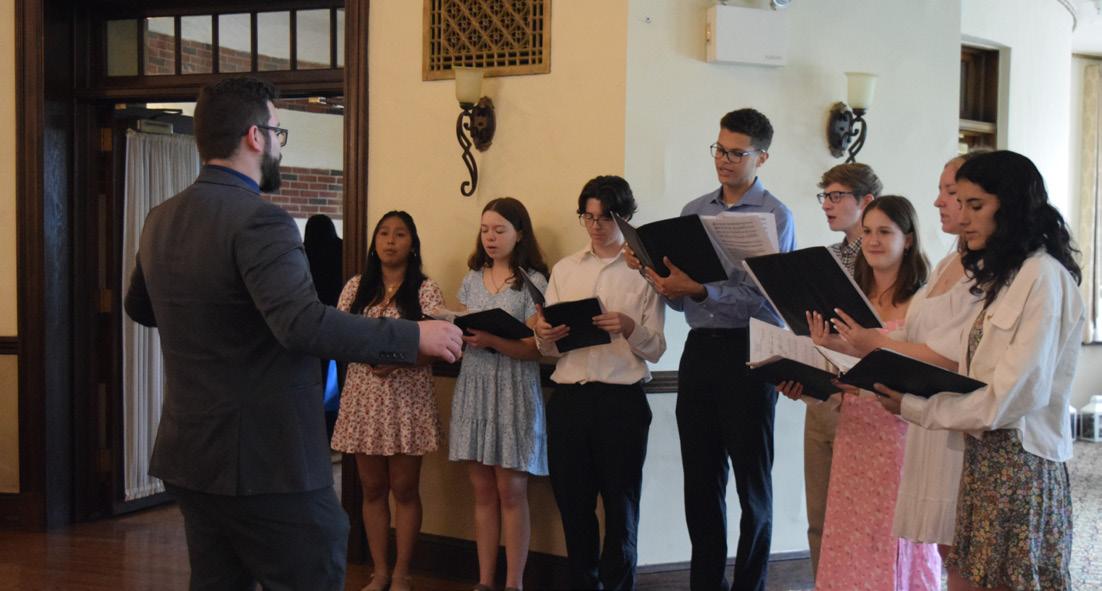
Director Caleb Deutsch leads the Stoney Creek Chorale of the Antietam School District as they kick off the luncheon with a performance of the National Anthem.
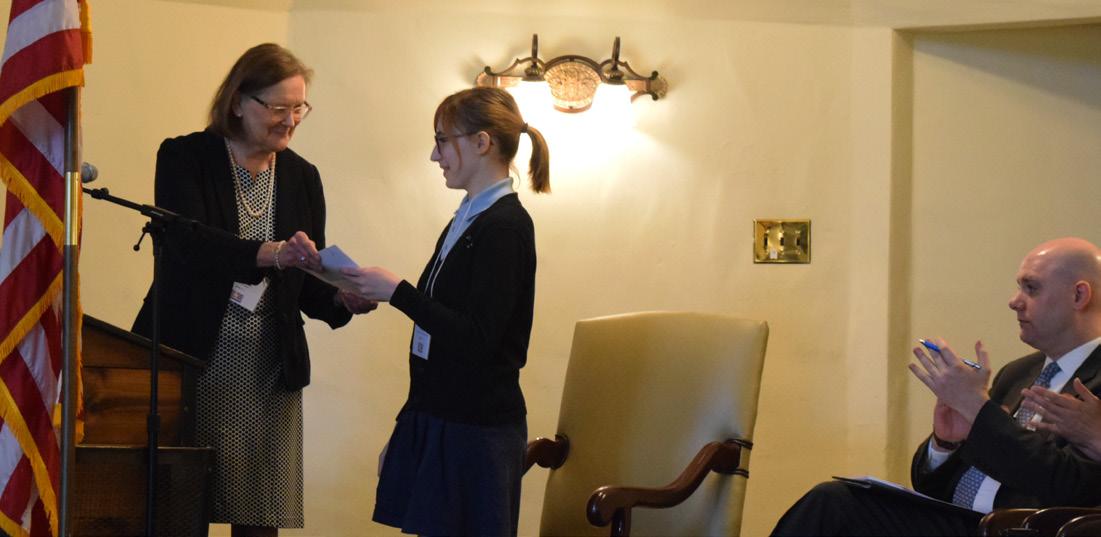
President Karen Cook presents Carly Hill, a 7th grader from St. Catharine of Siena School, the first-place award for the 7th and 8th grade category in the 2024 Law Day Multimedia Competition. Carly submitted an essay where she explains that she not only plans to vote but she plans to do all the research she can on the candidates running to ensure their beliefs line up with hers. Issues important to her include equal rights for everyone and treating the Earth kindly.
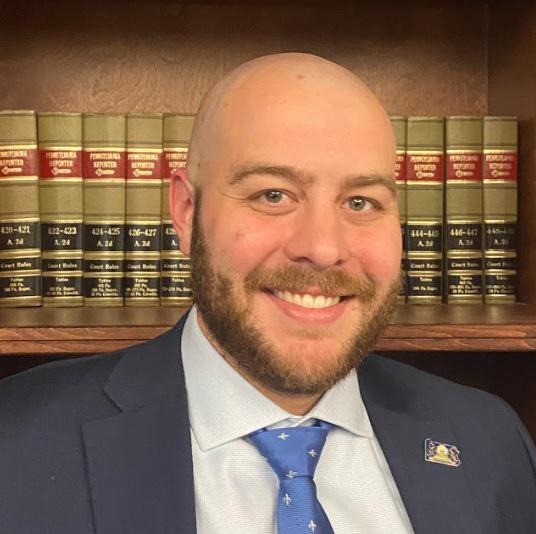
By Raymond Edward Baker, Esquire

On July 29th, 2024 President Joseph Biden, Jr. & Vice President Kamala Harris released their proposed reforms for the Supreme Court four years in the making. The White House stated that Supreme Court Justices must be limited to one 18-year term on the Highest Bench in the land, that they be required to follow a binding Code of Conduct & Ethics, and that Presidential Immunity be reduced to a qualified limited immunity overturning the Court’s most recent controversial ruling in Trump v. United States.1 Focusing on their former two reforms, what exactly will be accomplished by this, can such reform be passed, and will it help de-politicize and reign in our Judicial Activist Supreme Court?
Less than a decade ago, such a reform would have seemed preposterous; the Supreme Court and the third branch of Federal Government enjoyed approval ratings a president or congressperson could only dream of. The Court had for decades, despite a few controversial rulings, firmly established itself as the “Umpire of the Federal Government,” a position coined by Chief Justice John Roberts during his confirmation hearing where he told the senators the job of a justice is merely to “Call Balls & Strikes” and not to legislate from the bench. However, with the passing of Antonin Scalia and the refusal to seat Merrick Garland; the seating of Amy Coney Barrett after the passing of Ruth Bader Ginsburg; the Controversial rulings overturning decades of stare decisis along partisan lines in Dobbs v. Jackson Women’s Health Org., Loper v. Raimondo, and Trump v. United States; as well as the corruption scandals surrounding Clarence Thomas and Samuel Alito has left the Supreme Court with a near illegitimate status among the majority of the American public with its nonpartisan image now nonexistent.
This all still begs the question, will these reforms be effective? Eighteen-year terms would be helpful in making sure a justice
could not exert further power over the judiciary and the nation and helping to de-politicize the Court. By limiting the justices to staggered eighteen-year terms, each president would get to appoint two justices per term, and it would not incentivize strategic retirements by the justices. Currently only God or the justice themselves can decide when they will leave the bench, allowing them to wait for a president matching their politics to be elected before resigning, which has been the result of 9 of the last 11 justices to leave the Bench voluntarily2. The only justices in the last 40 years to leave under a president of a different political ideology being Justices William Brennan & Thurgood Marshall retiring under George Herbert Walker Bush in 1990 & 1991, respectively.
Additionally, by limiting the justices to eighteen-year terms, it will lead to older, more experienced justices being chosen, instead of choosing youngest justices feasibly possible for longevity purposes. Also, it would prevent clearly ailing justices from holding onto their seat past when they have the physical ability to oversee matters, as was seen under a justice like Ruth Bader Ginsburg – a justice who was clearly burdened by dire health conditions for multiple years prior to her death in 2020 but whom clearly refused to resign under the hopes that she could be replaced by a president more in line with her ideology than Donald J. Trump.
A binding ethics code is a necessary change as well; currently, the justices only real check is for impeachment and removal, something that has only sort of happened once in 240 years3. With justices like Samuel Alito and Clarence Thomas taking money and vacations from parties before the Court4,5, whose cases they then oversee and living in households showing support for or actively participating in an armed insurrection6 against the peaceful transfer of power, an easier way to remove justices from the Supreme Court Bench is a necessity. For a Supreme Court Justice

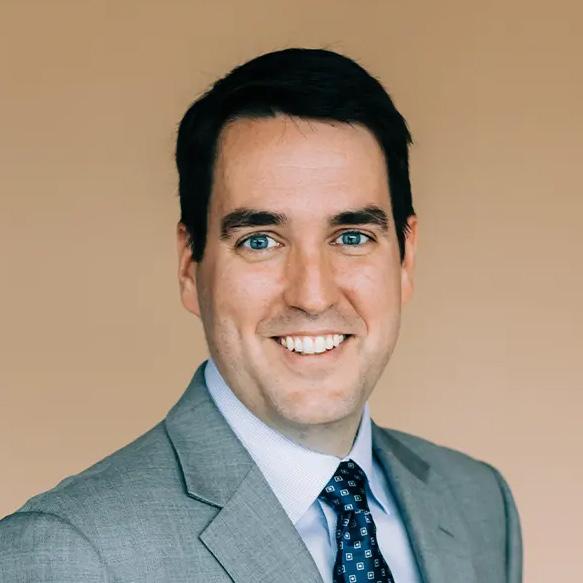
By Joel A. Ready, Esquire
In a star-studded ceremony on the front porch of the Supreme Court last, Chief Justice Roberts, flanked by the conservative majority of the Supreme Court, called for an enforceable code of ethics against the President that would allow the Supreme Court to investigate and remove the President for accepting donations for his campaign from individuals who might later receive his favor as President.
This didn’t happen, of course, and I suspect my friend, Mr. Baker, would decry this power grab by one of our three branches of government as a violation of the separation of powers. In his essay, however, he applauds President Biden’s arrows fired in the opposite direction.
On July 29, President Biden, the embodiment of the only branch of the federal government that has no code of ethics at all, decried the Supreme Court’s self-enforced code of ethics. The man with the third-longest term of service in the history of the federal government is concerned about how long Supreme Court Justices are permitted to serve. The politician who invented “Borking” and whose party elected him to “pack the Court” is concerned that the Court is becoming too partisan.
Like most undercooked ideas, President Biden’s brief speech and vague article are more ineffectual than outrageous. I’m not, in theory, opposed to more ethics in government (although I find it hard to accept the suggestion from a president who earlier this year decried and otherwise ignored the comprehensive findings of his own criminal wrongdoing in a 388-page special counsel report). But the President gives no details at all in his threadbare proposal as to what sort of ethics he’s calling for, and we’re left only to guess how the current ethical rules for the judiciary are inadequate.
The President’s op-ed calls for “a binding code of conduct for the Supreme Court,” one that is “enforceable” by someone other
than the Justices of the Court. But enforceable how? He doesn’t say. By impeachment? Isn’t that already the remedy? Enforceable by whom? If Congress feels the Supreme Court is committing ethical violations, the House can begin hearings tomorrow. Didn’t Article II, Section 4 solve this problem by providing for impeachment for, among other things, “Bribery?” If the evidence shows that any of our nine justices has indeed been influenced by a gift in the performance of his or her official duties, can’t this errant justice be investigated by Congress and impeached?
Ah, but politics, you say, is the problem. So, we’ll pass an “enforceable, binding code of conduct” that is above politics. Senators will no longer refuse to do their duty because this binding code of conduct will…cast the senator’s vote for removal for him? Judges will perhaps just agree to step down if someone says they violated the code of ethics. Or perhaps, we’ll create that fantasy of the utopian mind – a “bipartisan” commission. It will be manned entirely by the only nine people in our country that we can find who have no political opinions at all, and they will be influenced by no one. They will be chosen by the president to be above politics and be confirmed by disinterested senators who care only about virtue and fidelity to law. These judges will rule, not on political considerations, but only on what the text of the code of conduct provides for. They will be as unpolitical as the FEC, the FTC, the SEC, or any of our other deeply political “expert” agencies that the public does not know anything about or pay attention to but who make profound policy decisions every day in the shadows that we are called upon to accept as “bipartisan.”
The oldest President in history also thinks our justices are hanging on too long. The man whose 36-year tenure in the Senate was ended only by his 8-year service as Vice President does not discuss the fact that his time in Washington exceeds the longest serving justices in history by more than a decade. He

and they put your needs first every step of the way to get you the
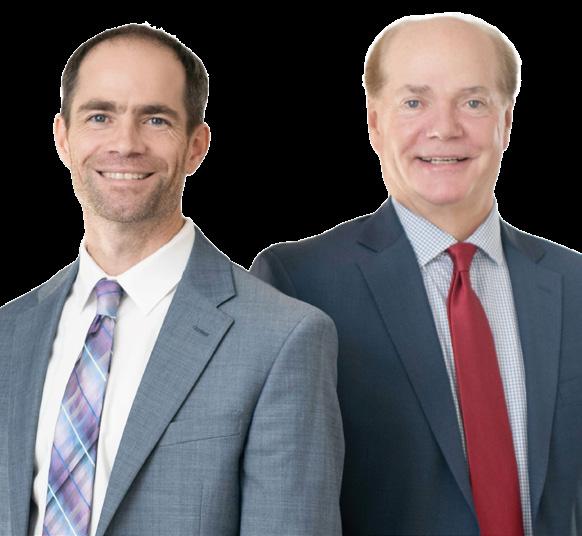
For the biggest investment of your lifetime, your experience is just as important as your agent’s. Over 40+ combined years in Berks real estate, the Eric Miller Team has delivered uncompromising honesty, integrity, and attention to give each customer the experience they deserve.
They’ve mastered a blend of savvy negotiation, strategic problem-solving, and impactful marketing, with a knowledge of the area and market that’s unmatched as true Berks natives and lifelong residents. They join less than 0.5% of Re/Max agents worldwide in the Circle of Legends, with Hall of Fame and Lifetime Achievement status and over $680 million sold.

Continued from page 22
to be above the ethics and laws they are overseeing for members of their bar, their judiciary, and their nation as we currently stand is foolish and hypocritical.
How can this be accomplished? Article III of the Constitution is rather vague on the specifics on whether a justice could be properly moved down to a lower court and does not state whether a justice on the Supreme Court may or may not be moved in such a manner. Article III merely states, “The judges, both of the supreme and inferior courts, shall hold their Offices during good Behaviour”7, which does not specify that a judge cannot be ordered to a lower court after their term of 18 years upon the highest office is over, while still maintaining a lifetime Federal Judicial Appointment. Additionally, Supreme Court Justices sitting on lower courts is not without precedent, as retired justices have found themselves serving and making law often in their home circuit8
The cleaner path to this reform would be a Constitutional Amendment; however, due to the difficulty in passing Amendments to the Constitution (the last occurred nearly 3 decades ago), it may be required to be done by legislation. This would receive pushback not only from the Court itself being restricted but from the conservative activists who have successfully taken over the judiciary over the past five decades as part of their Post-Warren Court Judicial Project.9
But, with the Supreme Court in its current state acting as an unchecked lifetime legislature beholden to no one, taking money from billionaires, and comforting seditionists while overseeing matters affecting both, something has got to give. In our Union, no matter how imperfect, no one of the three branches may outrank the other, and with the Third Branch of The United States Government headed down the path it is on, it is paramount to Our Republic that it must be reminded of this and checked by the First and Second.
• Judge, Court of Judicial Discipline
• Former Chairman, Judicial Conduct Board of Pennsylvania
• Former Chairman, Disciplinary Board of the Supreme Court of Pennsylvania
• Former Chairman, Continuing Legal Education Board of the Supreme Court of Pennsylvania
• Former Chairman, Supreme Court of Pennsylvania Interest on Lawyers Trust Account Board
• Former Federal Prosecutor
• Selected by his peers as one of the top 100 Super Lawyers in PA and the top 100 Super Lawyers in Philadelphia
• Named by his peers as Best Lawyers in America 2022 and 2015 Philadelphia “Lawyer of the Year” Ethics and Professional Responsibility Law and Legal Malpractice Law
111 North Sixth Street • Reading, PA 19601 (215) 751-2863 Representation, consultation and expert testimony in disciplinary matters and matters involving ethical issues, bar admissions and the Rules of Professional Conduct
Mr. Baker is a Berks County Assistant District Attorney. These opinions do not reflect the opinions, policies, or beliefs of the Berks County District Attorney’s Office. They are the sole opinion of the author.
1 President Biden announces bold plan to reform the Supreme Court and ensure no president is above the law. The White House. whitehouse.gov/briefing-room/https://www. statements-releases/2024/07/29/factsheet-president-biden-announces-boldplan-to-reform-the-supreme-court-andensure-no-president-is-above-the-law/.
2 This doesn’t include the three whom died on the Bench, being C.J. Rehnquist, J. Scalia, & J. Ginsburg.
3 Samuel Chase was impeached in 1804 but was not removed; no Supreme Court Justice has ever been removed from Office on Impeachment grounds.
4 “Durbin Reveals Omissions of Gifted Private Travel to Justice Clarence Thomas from Harlan Crow: United States Senate Committee on the Judiciary.” United States Senate Committee on the Judiciary, 13 June 2024.
5 Pengelly, Martin. “Samuel Alito Did Not Declare Gifts from Billionaire with Case Before Us Supreme Court.” The Guardian, Guardian News and Media, 21 June 2023, www.theguardian.
com/law/2023/jun/21/samuel-alitoundisclosed-gifts-billionaire-paul-singersupreme-court.
6 Pequeño, Antonio. “Alito’s House Reportedly Flew ‘appeal to Heaven’ Flag Used by Jan. 6 Rioters-Adding to Upside- down Flag Controversy.” Forbes, Forbes Magazine, 4 June 2024, www.forbes. com/sites/antoniopequenoiv/2024/05/22/ alitos-house-reportedly-had-appealto-heaven-flag-used-by-jan-6rioters--adding-to-upside-down-flagcontroversy/.
7 U. S. Const. art. III, § 1.
8 Barnes, Robert. “Retired Supreme Court Justices Still Judge — and Get Judged,” The Washington Post, 10 Mar. 2013, com/politics/retired-supreme-www.washingtonpost. court-justices-still-judge--and-getjudged/2013/03/10/1b22943c-897f11e2-8d72-dc76641cb8d4_story.html.
9 Toobin, Jeffrey. The Nine : inside the Secret World of the Supreme Court. New York :Doubleday, 2007.
Continued from page 23
does not mention that he is older than every justice on the Court. Nonetheless, he apparently thinks that liberal lions William O. Douglass, John Paul Stevens and William Brennan, to say nothing of our greatest Chief Justice, John Marshall, each should have been retired halfway into their careers. The United States is the “only major constitutional democracy that gives lifetime seats to its high court,” he intones, without any discussion of how this judicial independence is the envy of the world’s courts and has been a bulwark against popular reprisals against judges since the failed impeachment of Samuel Chase in 1805.
Term limits would create more regular and “predictable” confirmation hearings, says the President whose childish, abusive, and shameful behavior as chair of the Senate Judiciary Committee is more responsible than that of any man in American history for turning confirmation hearings into a circus and making confirmations an overtly political affair. The President offers no discussion of how this might affect the willingness of the best and most successful lawyers in our country to voluntarily leave their high-paying, powerful jobs to run through a political meatgrinder for the privilege of a lower-paying job which will end their career.
But let’s give credit where it’s due. President Biden’s proposal at least invites the nation to consider how to improve the Constitution by the amendment process of Article V. Our founding document has been amended only 16 times since the Bill of Rights (not counting the 27th Amendment which, after all, was proposed by Congress as part of the original Bill of Rights), and only seven times in the last 100 years. Our nation’s political class has grown lazy about continuing the development of the Constitution, preferring to turn to us, the lawyers, to sneak changes to the Constitution in through the backdoor of the Courts. And why not? It’s a lot easier to get five votes on the Court than the votes of two-thirds of Congress and three-fourths of the state legislatures.
Indeed, it is precisely the conservative push to surgically repair the Court-ordered plastic surgery done to our Constitution over the last half century that has our President announcing his attack on the Court. I appreciate the President’s candor in putting his real grievance right up front. He says we are “in the breach” because of “dangerous and extreme decisions” from the Court that “overturn settled legal precedents – including Roe v. Wade.” And, there it is. That’s what this is all about.
The Court didn’t need structural changes or ethical oversight in the 80 years that liberals held the Court in an iron grip. President Biden’s party didn’t propose term limits while our justices decided that the federal government could do anything in the name of interstate commerce as long as the farmer’s personal wheat supply had a theoretical impact on commerce, somehow. They didn’t complain when the Court made up a slogan for every cop in America to have to read to criminal defendants before they voluntarily confessed, or created, from whole cloth, a right to have the government pay for your attorney at trial. It was no
problem that the unanimous opinion of every state electorate that had considered the issue was snuffed out in a single decision by a 5-4 majority to invent a right to gay marriage that had no basis in the Constitution. But now that the Court has returned the most important civil rights issue of our time to the people to decide for themselves through the democratic process, our President objects, full of righteous indignation.
Some of you will be shocked at the paragraph above. You will sing the praises of the Court’s text-less innovations. Some may argue "The federal government has done a great good with the increased power that comes from Wickard and its progeny ‘stretching’ the constitutional limits on Congress. And haven’t public defenders’ offices contributed greatly to justice in America? Miranda warnings have seeped into the national consciousness and citizens know more about their rights from the TV shows that made it famous. And doesn’t your sense of justice demand that gay marriages be placed on equal footing with heterosexual marriages?”
But without arguing the merits of any of these “improvements” to the Constitution, the point is that they were all lawless. They lack the imprimatur of We the People. They fail as a matter of any cohesive constitutional theory. They open the door to taking real rights away from our Constitution in the same authoritarian way these invented rights were added – by a small body of unelected judges from whom there is no appeal. The real reason that President Biden is suddenly concerned about judicial power is because his party has lost it, and with it, the opportunity to continue forcing change on the American people without their consent.
As Democrat-Senator-turned-FDR-appointed-Justice Hugo Black vehemently objected in his dissent to the Katz decision, “I will not distort the words of the Amendment in order to ‘keep the Constitution up to date’ or ‘to bring it into harmony with the times.’ It was never meant that this Court have such power, which in effect would make us a continuously functioning constitutional convention.” Katz v. United States, 389 U.S. 347, 364 (1967) (dissenting opinion). Or as Justice Scalia said in dissent in Obergefell v. Hodges, “The substance of today’s decree is not of immense personal importance to me. . . . It is of overwhelming importance, however, who it is that rules me.”
“In America, the people rule,” President Biden said to close his call for change. But while the Justices were ruling the way he wanted, he was willing to let them rule you forever.
Here’s a radical idea for Supreme Court reform: let’s fence the federal government back inside the boxes in Article I, Sections 8 and 9, and let’s breathe life back into the 10th Amendment. Then, the Supreme Court will have no power left to control your life, and no one will care how often they’re appointed.
Mr. Ready is a partner in Cornerstone Law Firm in Maidencreek Township.

By DAVID S. TATEL
Reviewed by Donald F. Smith, Jr., Esquire
Icannot imagine being blind.
And, I really cannot imagine a blind lawyer achieving success as a litigator and then as appellate judge. Not to mention being an avid skier as well.
But David S. Tatel has done all of that. With declining vision resulting in total blindness, he spent 30 years in private practice and government service, taking on cases to force school integration, equal funding for women collegiate sports, tackling civil rights issues, capped off by serving for almost another 30 years as a judge on the District of Columbia Circuit Court of Appeals, considered the second highest court in America.
His book, Vision – A Memoir of Blindness and Justice, is an incredibly inspiring story.
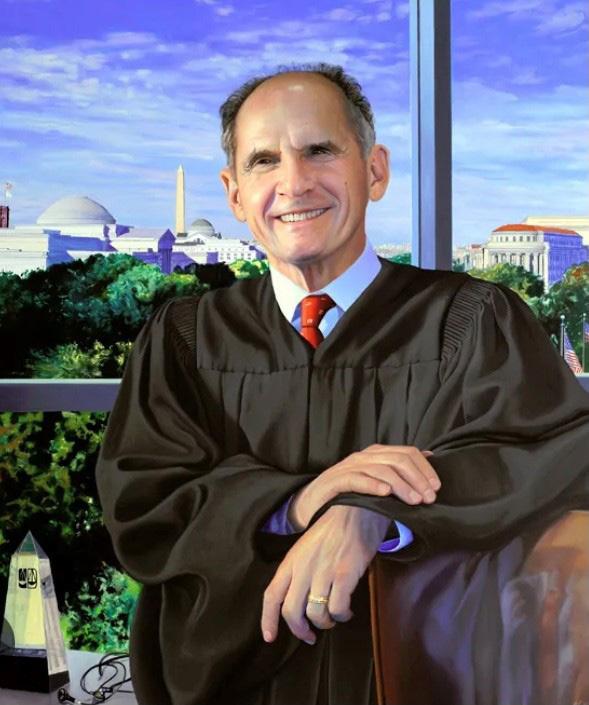
At first, as a young boy, he had no trouble with his eyesight. He loved evenings looking at the moon, stars, and planets through the six-inch telescope his father, a scientist, had constructed. But, in time, it became harder to see objects in the night sky, and then, at the age of eight or nine years, he confessed to his father, “I can’t see anything.” At first, at least in the daylight, he had no trouble functioning. Reading was okay, and he did fine delivering newspapers.
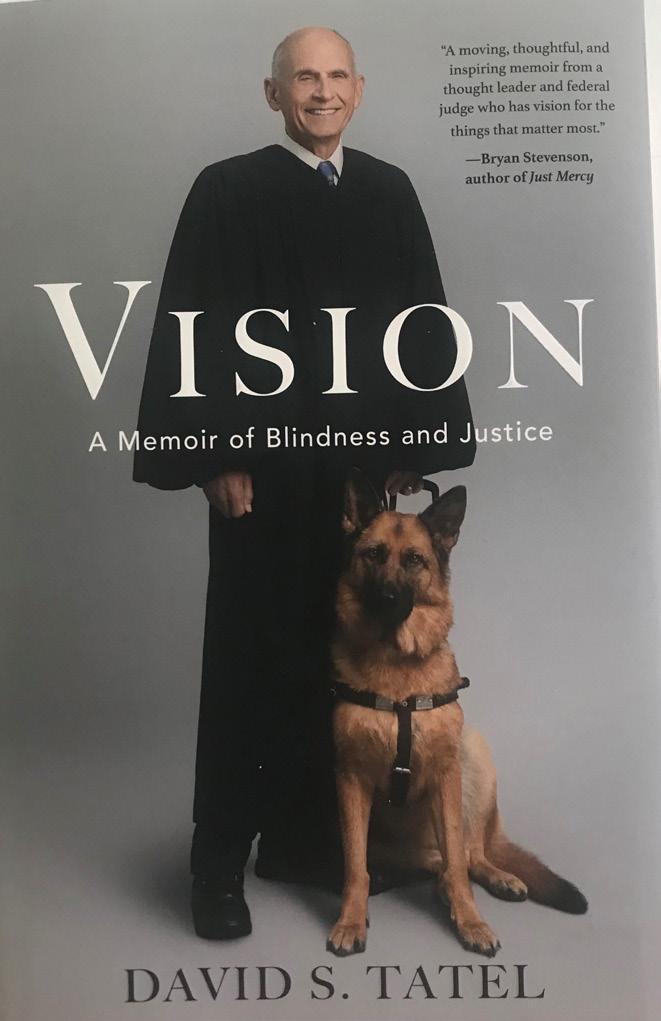
That changed in 1954, when, at the age of 12, while playing with friends, a ball he never saw coming hit him “smack in the face.” Over the next few years he was examined by a series of ophthalmologists who had no clue what was happening with his eyesight. One advised him to eat a lot of carrots. Another suggested he learn basket weaving so that he could earn a living if he ever became totally blind.
Finally, after a series of tests at the National Institute of Health, he was diagnosed with retinitis pigmentosa, a very rare disease afflicting the retina. At that point, he was a junior in high school, about to turn 16, and he wanted to live a normal life, which was also his mother’s wish.
Thus, she did not even object to him going for a driver’s license. At the DMV, he could read the required eye chart; he would have flunked a test for peripheral or night vision, if one had been given. His mother even allowed him to drive “her two-toned Chevy, with its whitewall tires and tail fins (a car I assume still lives in Havana).” The latter parenthetical comment is an example of Tatel’s wit which is sprinkled throughout the book.
After high school, he attended the University of Michigan where he thrived, initially as an engineering major, with minors in math and physics. However, after two summers working as a

government intern in Washington, D.C., being on the White House South Lawn to hear President Kennedy extol public service to the gathered interns and being in the crowd at the Lincoln Memorial to hear Martin Luther King’s “I have a dream” speech, Tatel changed his major to political science and went onto law school at the University of Chicago.
As his vision declined, he did not want others to know of his disability. He took notes with thick black pens, and, while crossing streets, he surreptitiously brushed elbows with friends.
By the 1970s, though, the gig was up. He was forced to begin using a white cane, his secretary read briefs and cases to him, he struggled learning Braille, but was blessed with a terrific memory. In time, technology advances with special devises and apps allowed him to read more on his own.
While his vision may have been lost, he never lost his passion “to make equal justice under law a reality, not just a mission statement.” Beginning as an associate for a Chicago law firm, he did pro bono litigation, seeking desegregation of Illinois schools and then as a leader of the Chicago Lawyer’s Committee working on behalf of civil rights plaintiffs.
After becoming a “maturing civil rights attorney,” he took a position with a Washington, D.C. firm. It was not long, though, before he was named director of the National Lawyers’ Committee, taking on discrimination issues around the country in employment, housing, school finance, and health care.
Two years later, he was recruited by Washington’s oldest law firm, Hogan & Hartson (now known as Hogan Lovells), to be
part of its newly formed Community Services Department, working exclusively on pro bono cases.
Later, for a time, he served as general counsel for the Legal Services Corporation, a funder of legal aid programs throughout the United States. In that position, he fought back efforts Presidents Nixon and Reagan made to weaken the LSC.
Despite the Corporation’s success, its funding is limited and too many low-income people are unable to have an attorney. He writes, “Were I in charge of the world, I’d extend Gideon to civil matters, guaranteeing lawyers for poor people facing eviction, victimized by predatory lenders, or sued for failing to make car or medical payments, just to name a few.” Nationally, it will never happen.
Instead, he calls upon our profession to do more pro bono representation. He points out: “As gatekeeper to the legal system, the profession itself has an obligation to ensure that those gates are open not just to those who can afford to pay attorney fees, but to everyone entitled to the law’s protection.” Berks County attorneys can be proud of our efforts, but, no doubt, more can be done.
In 1994, President Clinton nominated Tatel to serve on the bench of the D.C. Circuit, replacing Ruth Bader Ginsburg, who had been elevated to the United States Supreme Court.
Upon assuming the new position, his wife, Edie, asked him to promise her one thing. It was not to be home for family dinner, as he suspected, but rather to write his opinions without using footnotes. “If it’s worth saying, it’s worth saying in the text.” He kept his promise. In more than seven hundred written opinions, he never used one footnote.
Becoming a jurist for the first time, what was his view of the judge’s proper role? He described his approach: “Drafting narrow opinions, avoiding broad rulings except when necessary, and proceeding slowly and with caution sure sounded like good ideas to me. Deference to the judgments of elected officials, the fact-finding performed by district judges, and the opinions of subject-matter experts? That sounded all right, too. Judicial restraint was exactly
continued on next page



Randy L. Weidner Office:
RWeidner@GoBerksCounty.com www.RandyWeidner.com 1290 Broadcasting Road, Wyomissing, PA 19610


Continued from page 27
the tool I needed to resolve close questions.” He also viewed judging as including the “core principle of judicial restraint: faithfulness to precedent.”
He goes on to write, “Taken together, the principles of judicial restraint limit what unelected judges can do. That’s why it’s called ‘restraint.’”
Sticking to those principles, Tatel has been complimented by a politically conservative colleague on the bench: “Judge Tatel’s a political progressive, but he’s a judicial conservative.”
Later in the book he asks the question, “Do other judges do the same?” In order to answer that question, he instructs, “Read a few of their opinions and then ask: Is this judge enforcing statutes as written by Congress? Is this judge respecting precedent? Is this judge holding back from deciding unnecessary questions? Is this judge respecting the factual judgments of Congress, district courts, agencies, and subject-matter experts? If they’re not doing those things, you can be fairly sure that something other than judging is going on.”
With those criteria in mind, I was prompted to review decisions we have discussed recently as part of our annual SCOTUS seminars for the Bar Association:
• Not enforcing statutes as written by Congress – Shelby County v. Holder (eliminating the Voting Rights Act’s preclearance requirement for identified jurisdictions with a history of racial discrimination in voting even though Congress had collected 15,000 pages of testimony showing the need to continue requiring preclearance of election procedure changes in those designated jurisdictions).
• Not following precedent – Dobbs v. Jackson Women’s Health Organization (ending the 50-year-old constitutional right to an abortion); Students for Fair Admission cases (halting 45 years of affirmative action); and Loper Bright Enterprises v. Raimondo (overruling a 40-year-old precedent requiring deference to subject matter agencies when a statute is ambiguous).
• Not holding back from deciding an unnecessary question –Anderson v. Trump (unnecessarily rendering the Fourteenth Amendment’s Section 3 provisions banning an insurrectionist from office unenforceable, when the only issue had been whether Trump should stay on the Colorado primary ballot).
• Not respecting the factual judgment of a district court –Alexander v. South Carolina State Conference of the NAACP (reversing the District Court’s finding of unconstitutional racial gerrymandering despite its having conducted a 9-day trial, hearing testimony from some two dozen witnesses, receiving hundreds of exhibits and then concluding that the evidence supporting a judgment of racial gerrymandering was more credible).
As evidenced above, when it comes to the six conservative Supreme Court justices, each of Judge Tatel’s questions must be answered in the negative! I, for one, believe “something other than judging is going on” – the Federalist Society’s handpicked justices are working off an agenda set by the Federalist Society.
I am in good company. Judge Tatel notes that “poll numbers about public trust in the Supreme Court are plummeting to all-time lows.” He attributes it to, “Judging that appears based on a preordained agenda, not on text or precedent or deference, deplet[ing] the reservoir of public confidence.”
Towards the end of a chapter titled “The Future of Democracy,” he concludes, “Each time the Supreme Court disregards precedent and the other principles of judicial restraint, its power grows but its institutional capital dwindles. As Justice Potter Stewart once said, a ‘change in the law upon a ground no firmer than a change in membership invites the popular misconception that this institution is little different from the two political branches of the Government. No misconception could do more lasting injury to this Court and to the system of law which it is our abiding mission to serve.’”
As much as I appreciated his sharing of concerns about the current Supreme Court, I appreciated even more the chapter on Vixen, his German shepherd guide dog. For the 40 years he used the white cane, he had never given serious thought of having a guide dog. After listening to a podcast about guide dogs at the urging of his eleven-year-old grandson, he took the leap in 2019.
The chapter devoted to the dog’s training, Tatel’s training with the dog (“the hardest thing I’ve ever done”), and then what the dog is capable of doing to keep Tatel safe is simply fascinating reading! I am amazed and in awe of what Vixen is able to do and what Tatel is able to do with her by his side. The Judge’s son is quoted as saying, “When the two of you are together, she is certainly not a dog and you are not blind. Well, you are blind, but you are free and you are independent. With her, you have no handicap.”
No wonder the chapter is titled “The Dog Who Changed My Life.” Its eighteen pages alone are worth the price of the book.
David S. Tatel had to be hounded by friends and admirers to write a memoir. I am so glad he gave into the pressure.
Mr. Smith, the Berks County Bar Association’s Executive Director Emeritus, is a frequent speaker and writer on topics of constitutional law.
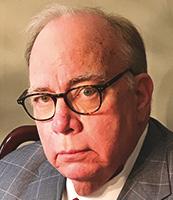

Continuing a tradition that recognizes the contributions of Berks County Bar Association leaders who helped build and continue to maintain our vibrant Bar Association, 19 Past Presidents of the Berks County Bar Association gathered at Anthony’s Trattoria on June 18 as summer was getting into full swing. Current Bar Association President Karen H. Cook toasted her presidential peers, thanking each for their service and leadership.
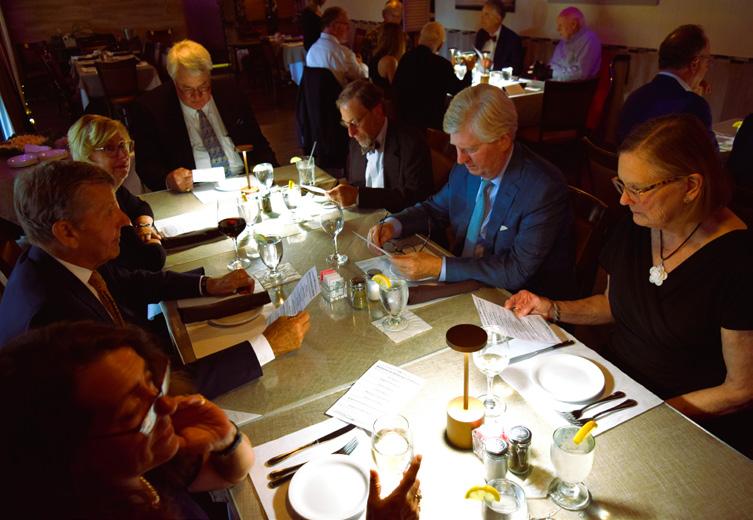
Surveying the dinner menus are: Eden R. Bucher; John J. Speicher (2002); The Hon. Jill Koestel; the Hon. A. Joseph Antanavage; Howard M. Lightman; Daniel B. Huyett; and President Cook.



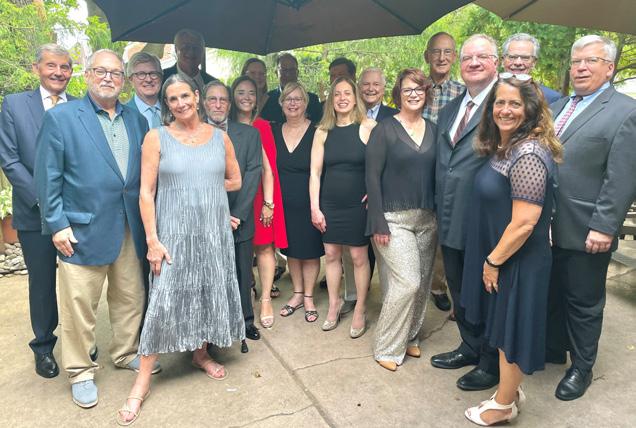
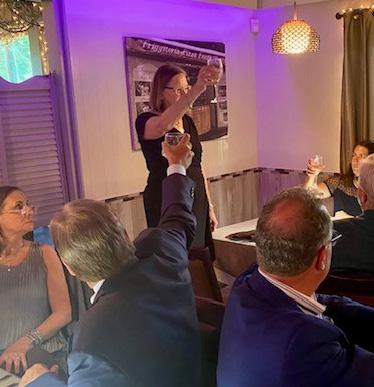
of the 19 Past Presidents
year’s dinner.



in the

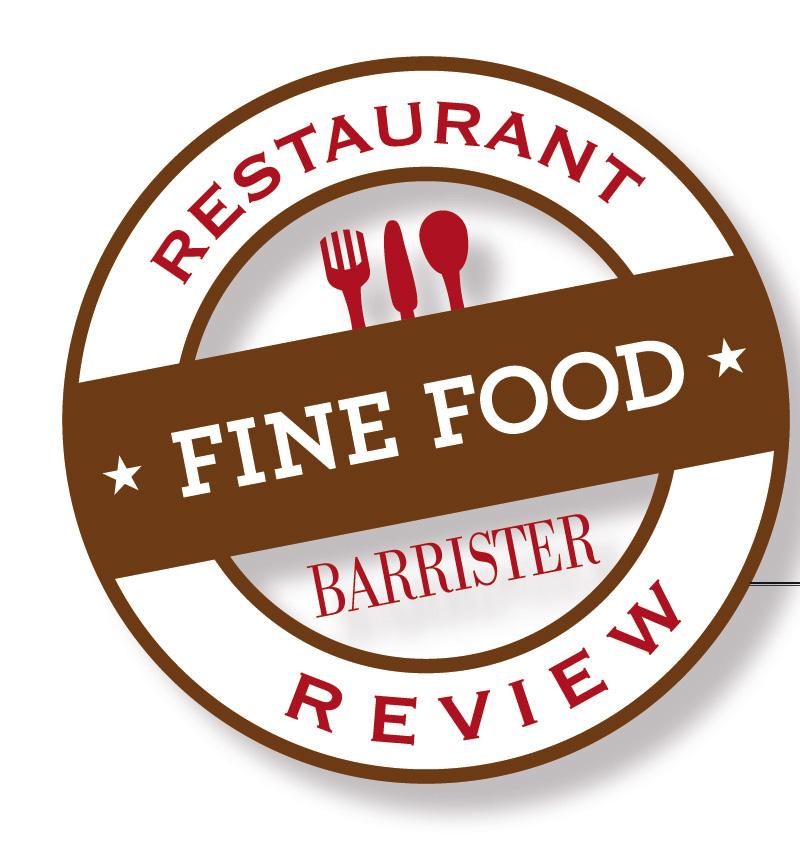
Osteria Avanti
38 Deborah Drive, Leola, PA www.theinnatleolavillage.com/ osteria-avanti

Perfectly seasoned and properly proportioned to the rolls, these meatball sliders are stunning.

By Susan N. Denaro, Esquire
Ilike finding hidden gems. My most recent find that is worthy of sharing is Osteria Avanti, part of the Inn at Leola in Lancaster County. This plain and small establishment about 30 miles from Wyomissing, in the heart of Lancaster County’s Pennsylvania Dutch tourist area, boasts an Italian-inspired menu filled with big and creative flavors.
My first visit to Osteria was during a girls’ spa getaway at the Inn a few months ago. After sipping a cocktail at the bar, we settled into a long table in the dining room and ordered what felt like every starter on the menu to share before moving on to more formal entrees. We found each appetizer as satisfying if not more than the one before. My favorites that night were the salami and cheese platter that also featured marinated olives and almonds, and the perfectly cooked, freshly cut, French fries dusted with herbs and served with a novel side of dijonnaise instead of the usual condiment, ketchup. The antipasti skewers were a bright accompaniment to the large platter of wine-sauteed calamari my friends enjoyed more than I, but both those dishes were tasty and merit an honorable mention.
Although I could have happily stopped after the appetizers, I had a pasta dish that was absolutely soul satisfying. It featured braised beef, goat cheese, and wild mushrooms served with penne in a rich tomato gravy. The entire dish was dusted with grated Wilbur chocolate, which until 2016 was made exclusively in Lititz, Lancaster County. I could not



A dusting of Wilbur chocolate tops this soulsatisfying entrée featuring braised beef, goat cheese, and wild mushrooms served with penne in a rich tomato gravy.

Serving butter in a pool of oil is a unique twist that pairs well with the warm herbed focaccia bread.
finish the generous serving and took about half of it home. To my amazement, it seemed even better leftover the next day.
Because my girlfriends were equally pleased with their meals, I convinced my husband to go with me a few months later to see if the second experience was as strong as the first. It was. Just like the first time, we started with a cocktail at the bar, which features many high-end liquors. Scotch and bourbon drinkers will especially enjoy the varied selection. Although I sipped my favorite Glenfiddich 14-year-old Speyside scotch with the girls, I ordered the rosé margarita for the shear novelty of it that second night. It was a delightful choice for a hot summer night, even though both the rosé and the rose syrup elements were a little overwhelmed by the tequila and lemon juice.
Our experience in the dining room began with some warm herbed focaccia served with a large slice of seasoned butter in a pool of extra virgin olive oil. I do not recall ever being served butter in oil before, but it was a lovely pairing with the soft bread. In retrospect, we probably were served the focaccia during the girls’ night, but there were so many appetizers that I overlooked the bread in the shuffle of plates around the table.
For something different, I ordered the risotto arancini to start while my husband selected the meatball sliders. The arancini were passable. My biggest objection was that they were only filled with cheese while I prefer peas and other filings. Otherwise, they were tasty and stood up well to the spicy marinara on the plate. In contrast, the meatball sliders were stunning. The beef was properly seasoned, and the size of the meatballs was in proper proportion to the buttery soft buns.
Because our starters were so heavy, I opted for the zucchini noodle entrée. The gorgeous dish featured grilled peaches, perfectly ripe heirloom cherry-sized tomatoes, and wild

Cheese is the only filling inside the risotto arancini appetizer, leaving the author longing for peas and other ingredients.

mushrooms. It was drizzled with a rich balsamic vinegar. Because the zucchini noodles were cut more finely than I usually find in restaurants, it allowed the other flavors on the plate to shine rather than be overwhelmed by the zucchini. This original combination of fruit and vegetables was light on the palate, yet the serving size was satisfying.
My spouse ordered the penne I had on my first visit. He described it as perhaps the richest-tasting pasta dish he ever had. While he enjoyed it, I know he will always opt for those meatball sliders at Osteria if he can order only one course.
Sadly, both times I was too full to order coffee or dessert. Happily, that means we will need to return. Next time, we might just dine at the bar and split an order of the meatball sliders, an order of the fries, and salad so we have room for some gelato or the apple torte.
Part of the fun of Osteria Avanti is that the menu is so varied that it has something for everyone. Whether you are looking for a laid-back casual meal or a more upscale dining experience, Osteria delivers. We imagine Osteria’s few paninis that are served on its fresh focaccia have to be good. Several other diners were spotted ordering them at dinner time. Even the diverse salads appear to have something for everyone.
Because the dining room is so small, reservations are recommended, as is arriving early to have a drink at the bar. For parties larger than four people, you may need to call the restaurant directly to reserve a table as the Open Table website does not seem to allow bookings for larger groups.
Ms. Denaro is with the Wyomissing firm Plank Frankowski.
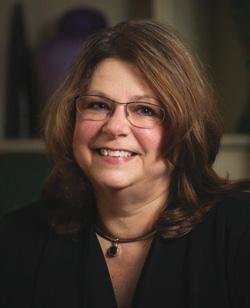

The Hon. James M. Lillis presided over a naturalization ceremony that welcomed 34 new American citizens on July 31st in Courtroom 5A of the Berks County Courthouse. Officer for the United States Bureau of Citizenship and Immigration Services Chris Baran presented certificates of citizenship to the newly naturalized citizens, who originated from 12 different countries, including Peru and the Netherlands. Berks County Commissioner Michael S. Rivera was the ceremony’s guest speaker and shared his excitement and hope for the great impact the newly naturalized citizens will make on the Berks County community. Many members of the community joined the celebration, including Governor Hiester Chapter, Sons of the American Revolution led by Peter Reinhart, who presented the colors, and soloist Cecilia Cooper, who sang the national anthem.
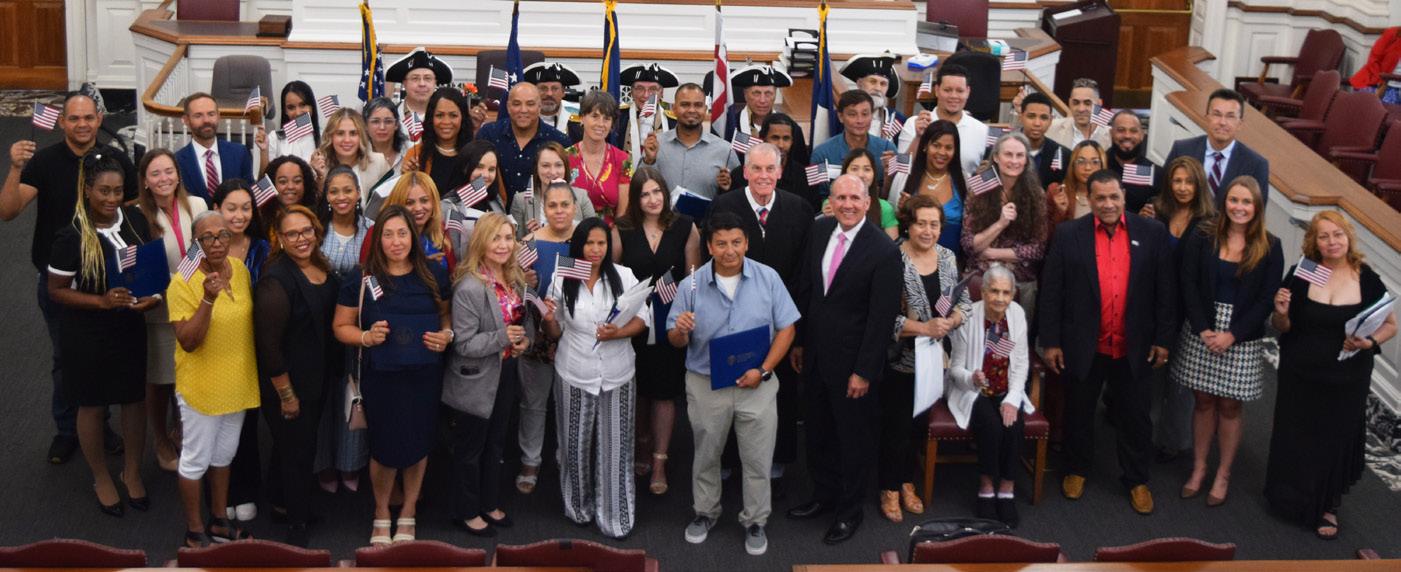
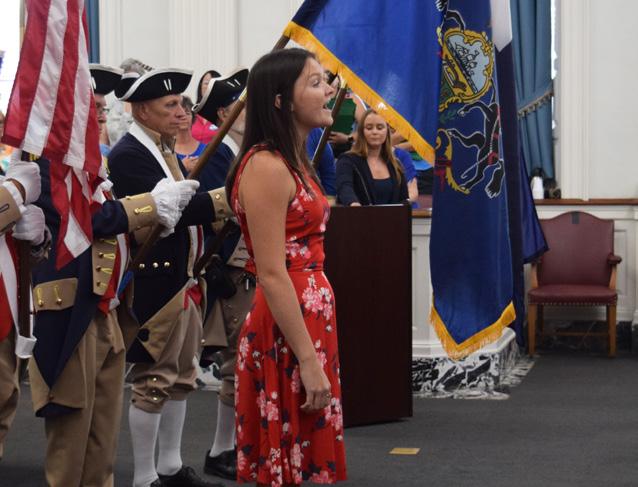
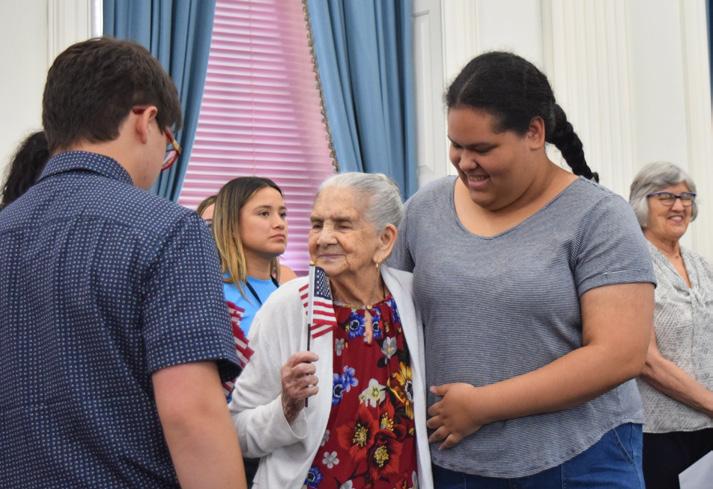
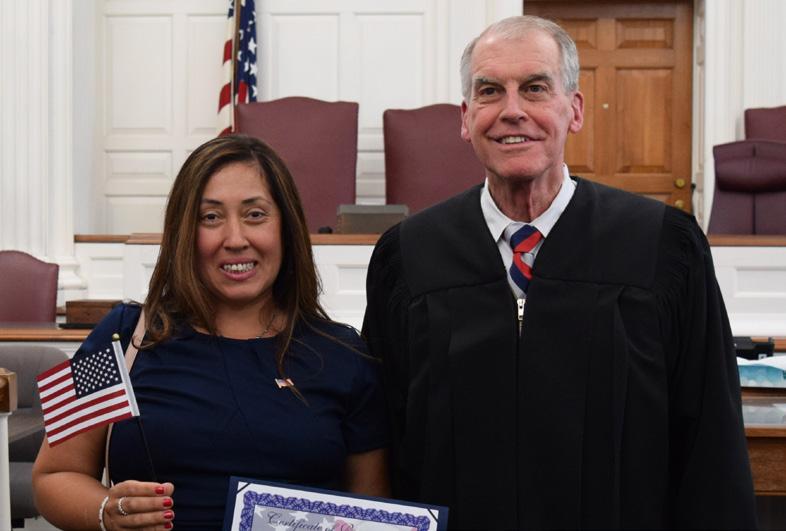

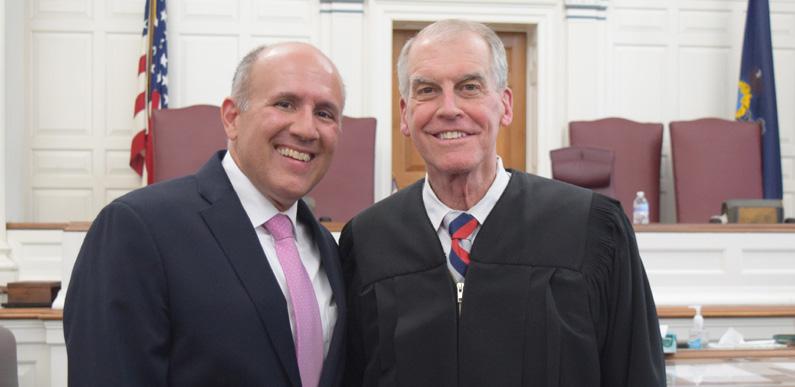
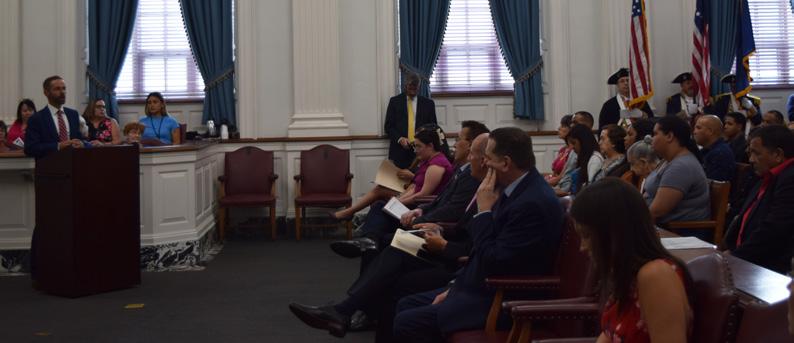
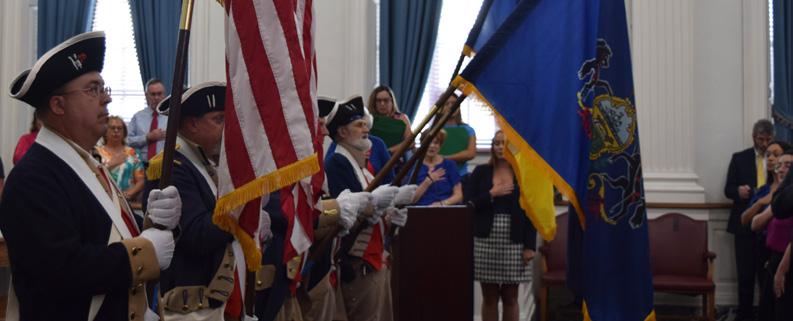

The Hon. Jeffrey L. Schmehl proudly presided over a special naturalization ceremony for 11 new U.S. citizens on the field at First Energy Stadium prior to the Reading Fightin Phils’ June 25th game. “You now share the same rights, the same privileges and the same obligations as any citizen of this great country,” Schmehl said as the 11 citizens from Spain, Sierra Leone, and the Dominican Republic raised their right hands to take the Oath of Citizenship.The U.S. District Court for the Eastern District of Pennsylvania and officials from United States Citizenship and Immigration Services (USCIS) organized the pre-game ceremony. The new citizens remained on the field for the National Anthem and then snapped photos with Schmehl and their families in the recently opened Redner’s Event Center behind the outfield wall.
Several of Schmehl’s colleagues from the U.S. District Court attended the ceremony and baseball game. “The federal judges have been talking about doing services like this outside a courtroom because it is important to raise awareness about civics and citizenship, especially in this day and age,” Schmehl said. “Holding a ceremony at this terrific stadium in Reading is nice; baseball is America’s pastime, and this evening will be memorable for those who worked so hard to become citizens as well as their families.”
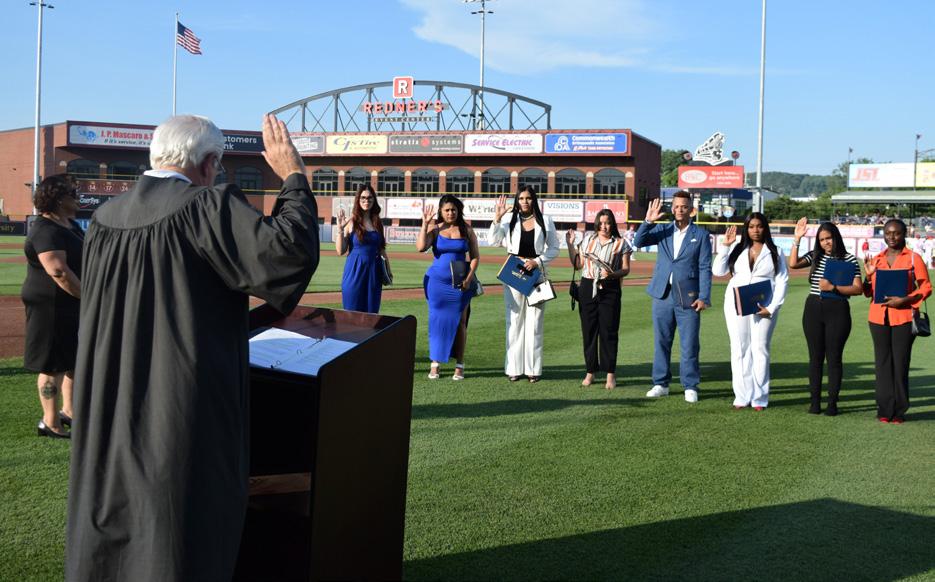
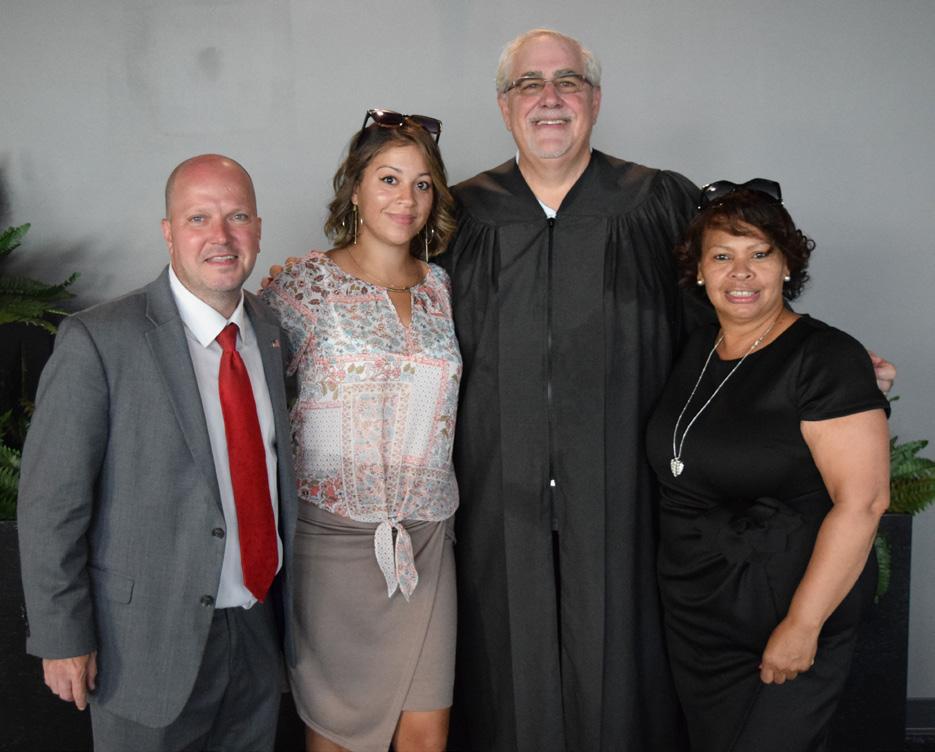
Part of the team that helped organize the ballpark naturalization ceremony are (from left): Frederick C. Druding, U.S. District Court for the Eastern District; Tanairi Rivera, USCIS; Judge Schmehl; and Yvette Plant, USCIS.
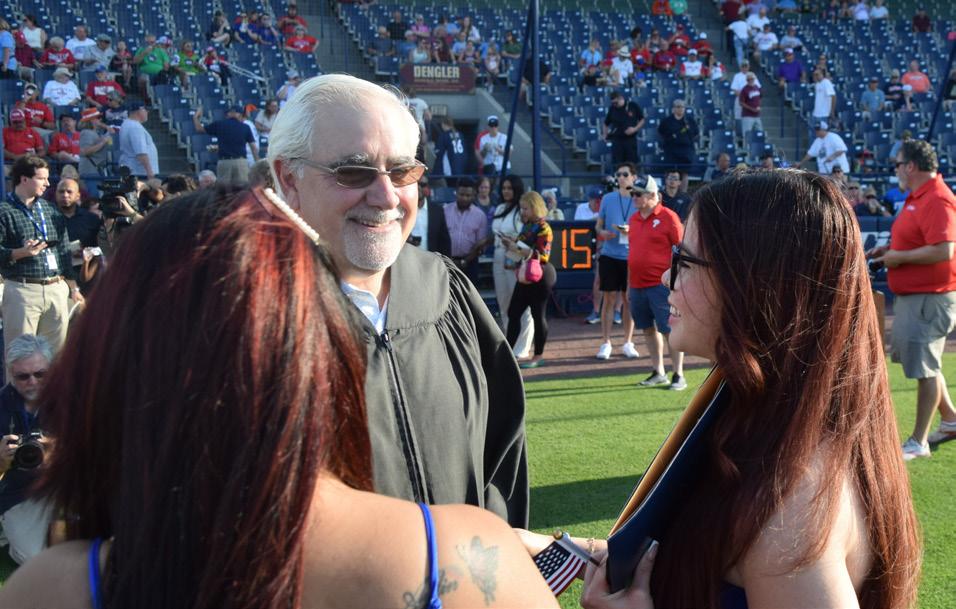
The Hon. Jeffrey L. Schmehl congratulates two of the new citizens.
The Hon. Jeffrey L. Schmehl administers the Oath of Citizenship to 11 new citizens in a pre-game ceremony at First Energy Stadium on June 25th.
By Elisabeth "Libby" Timura

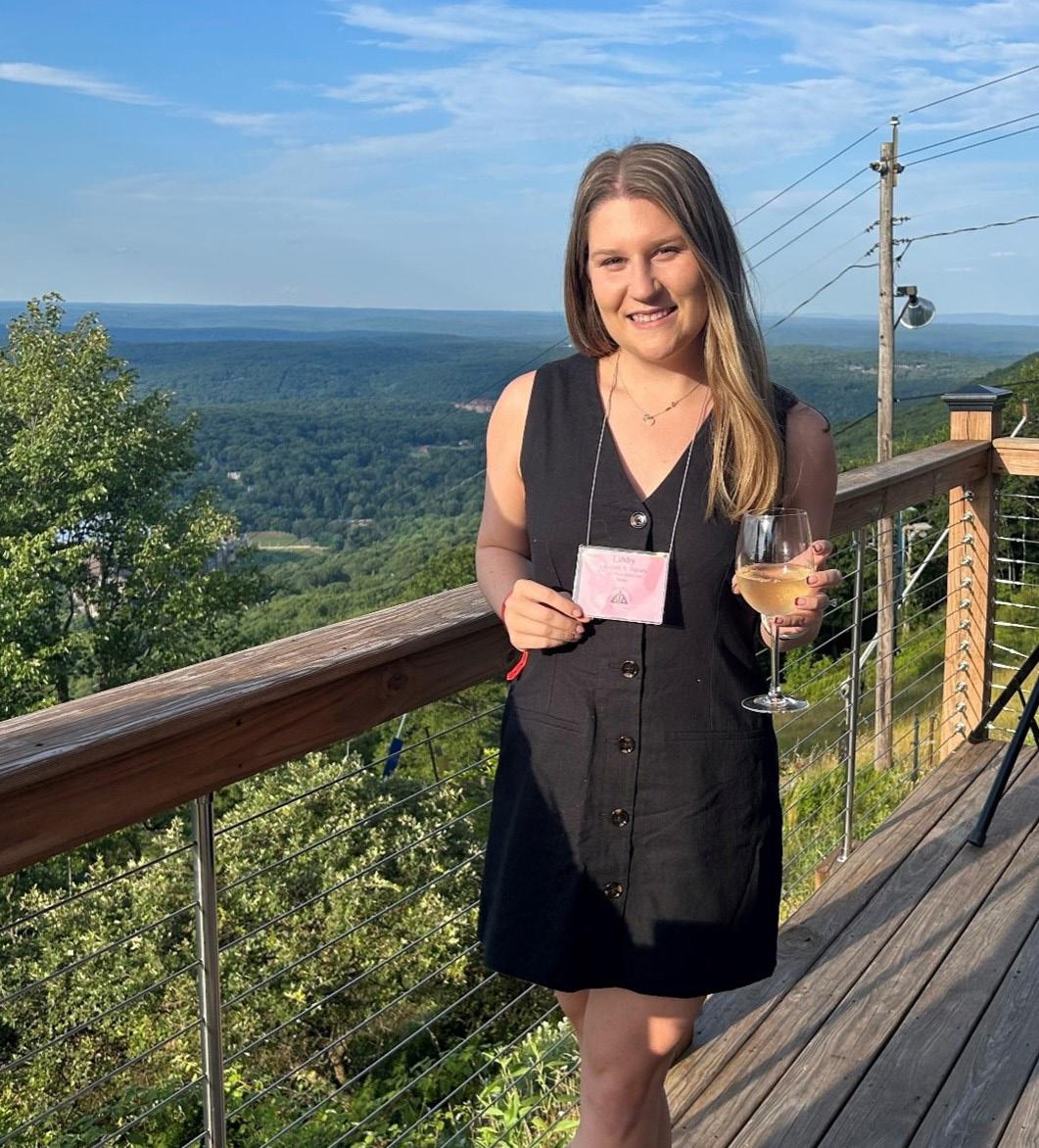
In July, I served as Berks County’s representative at the annual Pennsylvania Bar Association Young Lawyers Summit at Cambelback Resort in the Poconos. The weekend was filled with insightful CLEs and uplifting networking events.
This Summit tailored their curriculum and discussions around young lawyers and the unique issues that a newly admitted attorney may face. While bonding with other young lawyers and speakers, I was able to gain a deeper understanding of how to better navigate the practice of law as a young attorney.
The CLE seminar topics ranged from yoga and mindfulness to AI and work/ life balance. These seminars addressed relevant scenarios that the younger generation of attorneys may encounter. Attendees discussed social media reviews and maintaining confidentiality, starting a family, opening a practice, and more. The speakers did a wonderful job providing helpful tips on how to appropriately tackle these situations as a young lawyer, all while being vulnerable about the challenges these scenarios may present.
The location for this annual PBA event changes from year to year. I was beyond pleased with my stay at Camelback. The resort provided entertainment for everyone. Young lawyers with families frequented the indoor waterpark, pools, and zipline. Other lawyers took advantage of excursions to local wineries and breweries in the Pocono Mountains.
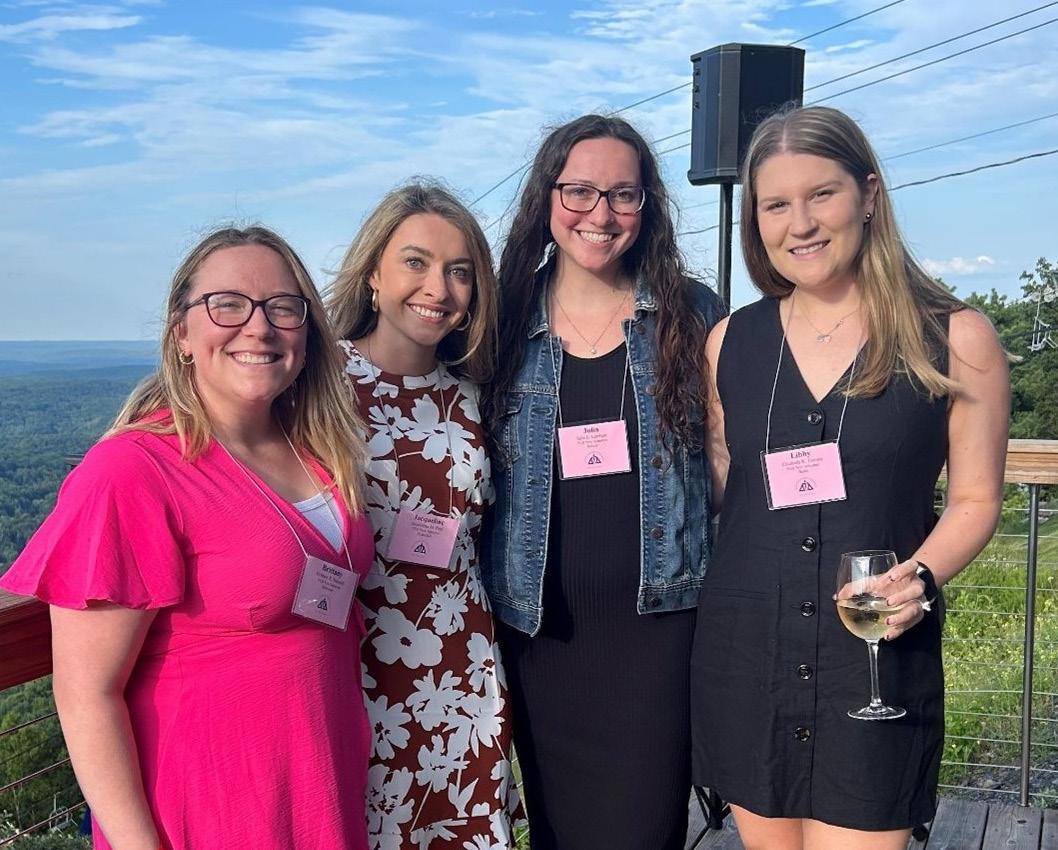
On the last night of the Summit, the PBA hosted the young lawyers and their families for a dinner followed by cocktails and live music overlooking the resort. During this dinner I was able to connect with young lawyers from all around the state and expand my network beyond Berks County. I am incredibly grateful for my time spent at the Summit and would encourage all young lawyers to get involved with PBA and Berks Bar Association events!
Ms. Timura is an attorney with the Reading firm Mogel, Speidel, Bobb & Kershner.
The Summit offers a chance to make connections with other young lawyers from across Pennsylvania. From left are: Brittany Naimoli, Montgomery County; Jacqueline Pitts, Schuylkill County; Julia Lambert, Beaver County; and Berks County’s Libby Timura.


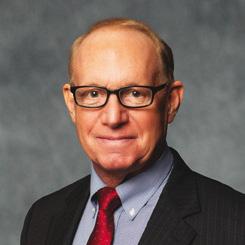
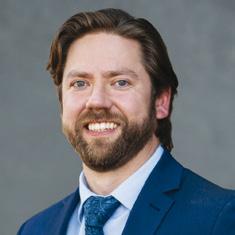




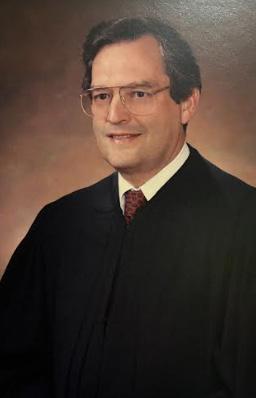
The Honorable Albert A. Stallone, a former President Judge of the Court of Common Pleas of Berks County, died in his home on June 29. He was 91.
Stallone began his legal career in 1960 as the youngest person appointed as an assistant district attorney in Berks County. Later, he served as solicitor to the Register of Wills Office and Orphans’ Court. During his career in private practice spanning 28 years, Stallone worked as legal counsel to numerous school districts, municipalities, churches, charitable organizations, and local industries, including then-privately held Morgan Trailer and Graco Children’s Products in southern Berks.
Stallone was appointed by Governor Robert P. Casey to the Berks County Court of Common Pleas in February 1987 to fill a vacancy created by the sudden death of Judge Arthur Ed. Saylor in 1986. Stallone then ran for election and finished first on the Democratic and Republican ballots in May1987.
He became President Judge in 2000 – a position he described as his “dream job.” Stallone retired as judge in 2011.
Attorney Carmen R. Stanziola served on Stallone’s staff for 22 years. During a memorial service for Stallone on July 15, Stanziola recalled how Stallone’s campaign theme was “One Man Can Make a Difference” – a philosophy that guided the judge’s decision making throughout his tenure on the Bench.
“No matter what division of the Court that he served in, Judge Stallone was always looking for ways to improve the court system,” Stanziola said. “When someone would respond to one of his suggestions by saying, “We can’t change this because this is the way that it has always been done,” his immediate and consistent response was that “This is probably the best reason to make the change.”

Stanziola said Judge Stallone tackled backlogs in the criminal and civil divisions by implementing a jury stacking process. That involved selecting a jury one day and beginning a trial on another date agreed upon by the judge and counsel.
In the civil division, Stallone would require the attorneys, the parties, and even insurance adjusters to appear in his courtroom for pre-trial conferences. Stanziola recalled that the mandated court appearances rankled some attorneys, but was intended to facilitate settlement discussions.
“Many people have said to me over the years that Judge Stallone was a “tough judge,” Stanziola said. “And my response to them has always been the same: he expected the same level of preparation and commitment from counsel that he expected from himself with the goal of ensuring that all parties and their counsel were given the opportunity to fully present their case before him or a jury so that justice could and would be done.”
Stanziola said Stallone presided over more than 150 criminal jury trials, more than 200 civil jury trials, and approximately 50 non-jury trials. Stallone wrote more than 400 criminal and civil opinions and thousands of court orders, according to Stanziola.
He was a member of the American, Pennsylvania, and Berks County Bar Associations and the American Judicative Society. He chaired many Berks County Bar Association committees, such as

Conventional wisdom says, “Don’t put all your eggs in one basket.” MLM thinks otherwise. Lawyers’ professional liability insurance is all we do. As a result of doing one thing, we do that one thing well. Proud Partnership Sponsor of the 2024 Bench-Bar Conference
At MLM “here today, here tomorrow” is more than just a motto and our financial strength is your best defense.
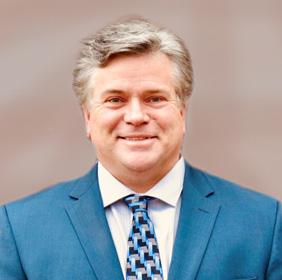
Quote
the Legal Aid & Lawyer Referral Committee (where in 1963 he brought to Berks its first government-financed Public Defender Program in the state), the Family Law Section (Founding Chair), and was a former President of the Endlich Law Club.
Stallone was also active in the community and philanthropic organizations. He served for 18 years as President of the Board of Directors of the Children’s Home of Reading. He attended Holy Cross United Methodist Church from the age of 5 and, as an adult, served as Chairman of its Task Force on Social Concerns, which in turn established Northwest Neighborhood Ministries to serve dependent and neglected children. He served on local and regional committees of the Lions Club International. And he was extremely proud of bringing together his beloved community as co-organizer of the Columbus ’92 Celebration Commission of Berks County, celebrating multicultural pride in Reading.
Stanziola noted that Stallone led the creation of Berks County’s first Domestic Violence Coordinating Policy Group. His work in this area helped him earn a 2004 “Voices for Change Award” from Berks Women in Crisis (now Safe Berks).
In a Reading Eagle article about the 2004 award presentation, Stallone was credited with ushering in several court reforms, including:
continued on next page

Swanona At Historic Centre Park
606 North Fifth Street, Suite 7
P.O. Box 1339
Reading, Pennsylvania 19603
Tel: 610.378.5555
Fax: 610.378.5551
drb@beanellc.com www.beanellc.com
Helping the Regulated Community Manage Environmental Risk and Solve Environmental Problems


Continued from page 37
• Hiring a domestic violence program manager to coordinate and improve the way domestic violence cases are handled.
• Establishing a domestic violence coordinating policy group made of people from education, law enforcement, the courts, and social service agencies to examine polices, recommend changes, and open lines of communication among people who confront domestic violence.
• Creating a database from which judges can get immediate, complete information on people accused of domestic abuse so judges can make better decisions when asked to issue Protection From Abuse Orders.
Linda R. Patton, Executive Director for Berks Women in Crisis at the time, praised Stallone for his work combatting violence against women and children. “He has pushed for justice, cooperation, and respect,” Patton told The Reading Eagle. “He has used the authority and visibility of his position to make positive changes in our justice system and for victims of domestic violence.”
Born in Reading on April 5, 1933, Stallone spent much of his youth as a resident of the Home for Friendless Children (subsequently renamed The Children’s Home of Reading) until the age of 12. When his father returned from serving in WWII, they lived in a one-room apartment together until he completed high school. Graduating from Reading High School in 1951, he went on to graduate from Wesley Junior College, the undergraduate school of American University, and then its Washington College of Law. He was later voted into the Hall of Fame at Southern Junior High School, Reading Senior High School, and at Wesley Junior College. At American University, he met the love of his life, Orpha C. Dodge, who became his wife of almost 68 years.
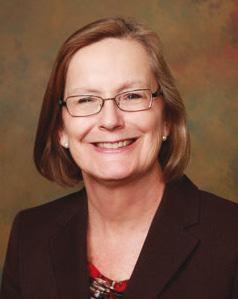
KAREN H. COOK
KCook@MasanoBradley com

Judge Stallone is survived by their four children: Rocky Stallone (partner Barbara Stallone), Susan Kelly, Sandy Fordice (married to Bob Serrone), and Marty Stallone (married to Terri Stallone). He was devoted to his ten grandchildren: Sonny Stallone, Daniel Fordice (wife Garland), Samantha Muir (husband Chad), Ryan Fordice (wife Shana), Liza Kelly, Jack Kelly, Wade Stallone, Mitchell Fordice, Emily Fordice, and Jolie Stallone. He is also survived by four great-grandchildren, nieces and nephews, two halfbrothers, Jim and John Stallone, a half-sister, Jean Favinger, and his stepmother, Ruth Stallone. He was predeceased by his wife Orpha and his sister and her husband, Sally and Ted Smith.
By Donald F. Smith, Jr., Esquire
This is a vent about the Second Amendment.
Specifically, a vent on the originalism method’s improper interpretation of the Amendment.
I have written in the past that, “Originalism makes my blood boil.” Well, the “boil” was increased quite a few degrees after reading the recently published book One Nation Under Guns by Dominic Erdozain. The book’s endnotes referenced a 2009 Law Review article, “The District of Columbia v. Heller and Antonin Scalia’s Perverse Sense of Originalism,” by Professor William G. Merkel, which I then read.
Both tear to shreds the reasoning employed by the originalist U.S. Supreme Court Justice Scalia in his majority opinion in District of Columbia v. Heller, 554 U.S. 570 (2008). By a narrow 5 to 4 vote, the Court held, for the first time, that the Second Amendment provided an individual’s right to possess a firearm unconnected with service in the militia.
First, a refresher on the theory of originalism. The method seeks to interpret Constitutional language by determining its “original understanding” at the time ratification occurred of its seven articles in 1789, the Bill of Rights in 1791, or the Fourteenth Amendment in 1868.
Originalists believe that taking any other approach allows justices to freely impose their personal views, in effect legislating from the bench. They claim originalism provides neutral objectivity.
Turning then to the Second Amendment’s language: “A well regulated Militia, being necessary to the security of a free State, the right of the people to keep and bear Arms, shall not be infringed.”
Justice Scalia splits the Amendment into two parts. He finds the “operative clause” to be “the right of the people to keep and bear Arms, shall not be abridged,” and the first part is simply “prefatory” and nonoperative. To Scalia, the Amendment is not referring to an “organized militia” but rather to a “pool” of armed men. Thus, he concludes the Amendment grants a personal right and not a collective one.
But such a conclusion ignores history and its original 1791 understanding.
Professor Merkel notes historians specializing in eighteenth-century American political thought conclude overwhelmingly that the Amendment’s drafters “focused on one concern, and one concern only – the desire to ensure the preservation of local militia as the preferred option to a politically dangerous standing army, and for that purpose, and that purpose only, to preserve the right of individuals to remain armed so that they could fulfill their civic duty in that militia.”
As the author Erdozain then explains

at length, the Founders wanted to avoid a standing army, because professional soldiers were viewed as “hostile bodies” and inconsistent with a free government. Instead, “the militia was lauded as the natural strength of the community: local, accountable, and reassuringly transient.”
Scalia’s conclusion is also at odds with precedent. As Erdozain points out, the High Court held in Presser v. Illinois (1886) that in order to claim a Second Amendment right to bear arms, “a man would need to be a member of ‘the regular organized militia of the state.’”
Also, in United States v. Miller (1939), the Court found “the ‘obvious purpose’ of the Second Amendment was to assure the continuation of the state militias.”
Instead, Scalia cites in support Nunn v. State, an 1846 decision by Georgia’s first chief justice, Joseph Henry Lumpkin, who nullified a state law banning openly or secretly worn weapons. Lumpkin’s reason – the Second Amendment provides a right “of the whole People” to bear arms; the
regulated militia was just one example. Erdozian notes Lumpkin’s passion was white supremacy; “his ardor for an armed society seems to have been inspired by the need to defend slavery.” The decision, however, proved to be an outlier and was overruled by the Georgia Supreme Court in 1874.
Erdozian writes that in 1955 the National Rifle Association commissioned a young lobbyist, Jack Basil, to delve into history to find a personal right to bear arms. After completing his research, Basil concluded in a confidential memo, “From all the direct and indirect evidence, the Second Amendment appears to apply to a collective, not an individual right to bear arms.” His memo was buried by the NRA.
Both of my resources describe the former Chief Justice Warren Burger participating in a 1991 PBS television interview marking the 200th anniversary of the Bill of Rights being ratified. Without even knowing about the secret memo, he described the lobbying then being done by the NRA as “one of the greatest pieces of fraud…” He emphasized the words, “A well regulated militia.” Not viewing it as a “nonoperative clause.”
In Professor Merkel’s words, “Scalia’s devaluation of the militia clause, calculated as it is to lead to the result he prefers, is arbitrary and unfounded.” Furthermore, the opinion reveals “the shallowness of originalist claims to neutrality.”
Following Heller, two conservative jurists, Judges Harvie Wilkinson and Richard Posner, according to the professor, described Scalia’s opinion as “resultsoriented historical fiction.” Yet, that fiction has opened the door to the lifting of many gun restrictions.
If creating a right not understood in 1791 to be embodied in the Second Amendment is the result of orginalism, then the theory is not just perverse, it is a fraud.
Mr.
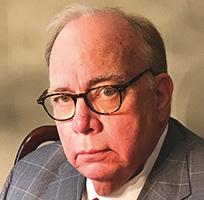

We’re bullish on your future. When we work together, you get personalized guidance, insights and financial planning — all designed to connect your life with your finances and to help make the path toward your goals even clearer. Let’s have a conversation.
Maggs & Associates
Merrill Lynch Wealth Management
985 Berkshire Blvd., Suite 200
Wyomissing, PA, 19610
610.320.5462
fa.ml.com/maggs